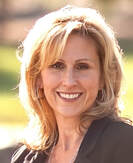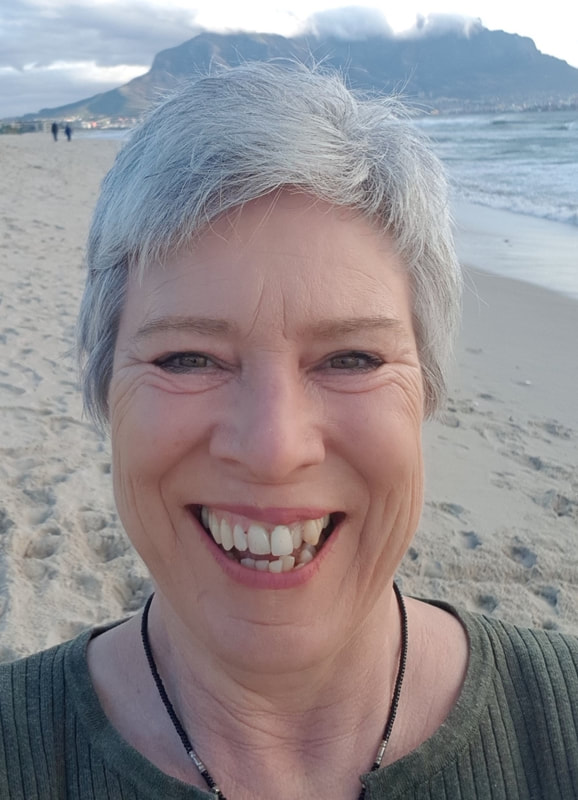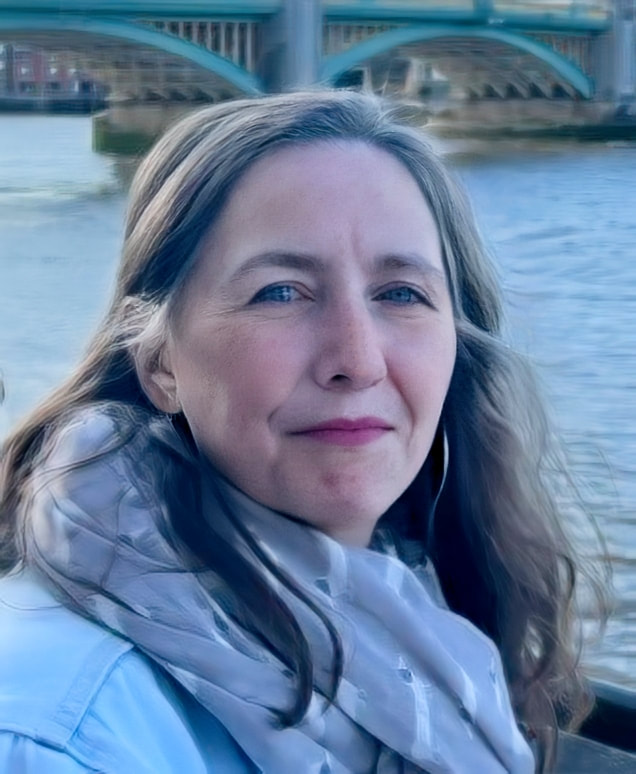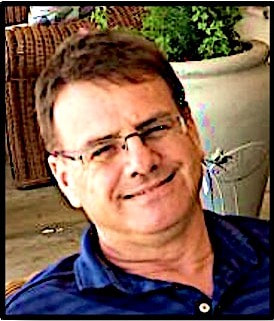LCLI FELLOWS
|
LCLI Fellows are a living web of transformational connections upon which each Fellow can draw.
Each inevitably inhabits other webs or networks that are of interest and value.
Our desire in this loose Fellowship is to make visible the rich complexity within which we all live, work,
helping extend those human connections that contribute to enhanced life and flourishing for all.
Each inevitably inhabits other webs or networks that are of interest and value.
Our desire in this loose Fellowship is to make visible the rich complexity within which we all live, work,
helping extend those human connections that contribute to enhanced life and flourishing for all.
-
Alvarado, Carla
-
Anand, K. 'Sunny'
-
Anderson, Joy
-
Barnett, Kevin
-
Bersagel-Brayley, M
-
Barilla, Dora
<
>
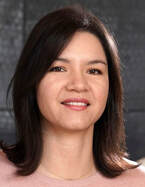
Carla Alvarado
Carla (PhD) is a Program Officer at the U.S. National Academies of Sciences, Engineering and Medicine, supporting the activities of the Health and Medicine Division’s (HMD, formerly the Institute of Medicine) Roundtable on Popula-tion Health Improvement. The Roundtable embraces health and well-being as concepts that require an equitable and multi-sectoral approach.Carla isCo-Chair of the HMD Committee onEnhancingDiversity and Inclusion, a staff-led group. Previously, she worked at the U.S. Department of Health and Human Services’ Office of the National Coordinator for Health Information Technology (ONC). A current member ofAcademyHealth'sDisparities InterestGroup and a medical reserve corps volunteer in Virginia, USA, she is a self-declared public health generalist. With academic and professional experience at the local, regional and federal levels in population health, health policy, health disparities, intersectionality, health services research, public health preparedness, health education, and environmental health,Carla is also educated in nursing, political science and economics
Carla (PhD) is a Program Officer at the U.S. National Academies of Sciences, Engineering and Medicine, supporting the activities of the Health and Medicine Division’s (HMD, formerly the Institute of Medicine) Roundtable on Popula-tion Health Improvement. The Roundtable embraces health and well-being as concepts that require an equitable and multi-sectoral approach.Carla isCo-Chair of the HMD Committee onEnhancingDiversity and Inclusion, a staff-led group. Previously, she worked at the U.S. Department of Health and Human Services’ Office of the National Coordinator for Health Information Technology (ONC). A current member ofAcademyHealth'sDisparities InterestGroup and a medical reserve corps volunteer in Virginia, USA, she is a self-declared public health generalist. With academic and professional experience at the local, regional and federal levels in population health, health policy, health disparities, intersectionality, health services research, public health preparedness, health education, and environmental health,Carla is also educated in nursing, political science and economics
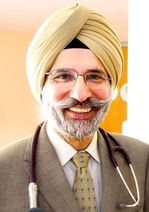
Kanwaljeet 'Sunny' Anand
Professor of Pediatrics and Anesthesiology at Stanford University School of Medicine; serves on the Executive Commit-tee for Pediatric Pain Research Network (2015) and Governing Council for the Pain in Children SIG at IASP., Sunny is a graduate from M.G.M. Medical College, Indore (India), Rhodes Scholar at University of Oxford where he received the D.Phil. degree, followed by post-doctoral fellowship at Harvard Medical School, Pediatrics training at Boston Children’s Hospital and Critical Care Medicine training at Massachusetts General Hospital, Boston. He received the Dr. Michael Blacow Award from British Paediatric Association (1986), Pediatric Resident Research Award from American Academy of Pediatrics (1992), the inaugural Young Investigator Award in Pediatric Pain from International Association for Study of Pain (IASP, 1994), the Jeffrey Lawson Award from American Pain Society (2000), Windermere Honorary Lectureship from Royal College of Paediatrics & Child Health (2004), Joan M. Cranmer “Mentor of the Year” Award (2007) from University of Arkansas, the Nils Rosén von Rosenstein Award from the Swedish Academy of Medicine (2009), the 9th Annual “In Praise of Medicine” Public Address from Erasmus University (2013), the 14th Dr. Jackson Rees Memorial Lecture (2013), the 5th Annual Dr. David Todres Grand Rounds (at MGH, 2014), the 14th Annual Dr. John Fang-man Lecture (2014), and 2015 Journées Nationales de Néonatologie Lectureship at The Pasteur Institute (Paris, France). His community service activities were recognized by the Father Joseph Biltz Award (2007) from National Conference for Community & Justice (NCCJ) and the Dr. Martin Luther King “Salute to Greatness” Individual Award (2008) from State of Arkansas. He has published over 250 peer-reviewed articles, edited 7 books and journal issues, contributed 60 book chapters and numerous other pub-lications. He is a leading authority on pain and stress in newborn babies, and management of pain in infants and children.
Professor of Pediatrics and Anesthesiology at Stanford University School of Medicine; serves on the Executive Commit-tee for Pediatric Pain Research Network (2015) and Governing Council for the Pain in Children SIG at IASP., Sunny is a graduate from M.G.M. Medical College, Indore (India), Rhodes Scholar at University of Oxford where he received the D.Phil. degree, followed by post-doctoral fellowship at Harvard Medical School, Pediatrics training at Boston Children’s Hospital and Critical Care Medicine training at Massachusetts General Hospital, Boston. He received the Dr. Michael Blacow Award from British Paediatric Association (1986), Pediatric Resident Research Award from American Academy of Pediatrics (1992), the inaugural Young Investigator Award in Pediatric Pain from International Association for Study of Pain (IASP, 1994), the Jeffrey Lawson Award from American Pain Society (2000), Windermere Honorary Lectureship from Royal College of Paediatrics & Child Health (2004), Joan M. Cranmer “Mentor of the Year” Award (2007) from University of Arkansas, the Nils Rosén von Rosenstein Award from the Swedish Academy of Medicine (2009), the 9th Annual “In Praise of Medicine” Public Address from Erasmus University (2013), the 14th Dr. Jackson Rees Memorial Lecture (2013), the 5th Annual Dr. David Todres Grand Rounds (at MGH, 2014), the 14th Annual Dr. John Fang-man Lecture (2014), and 2015 Journées Nationales de Néonatologie Lectureship at The Pasteur Institute (Paris, France). His community service activities were recognized by the Father Joseph Biltz Award (2007) from National Conference for Community & Justice (NCCJ) and the Dr. Martin Luther King “Salute to Greatness” Individual Award (2008) from State of Arkansas. He has published over 250 peer-reviewed articles, edited 7 books and journal issues, contributed 60 book chapters and numerous other pub-lications. He is a leading authority on pain and stress in newborn babies, and management of pain in infants and children.
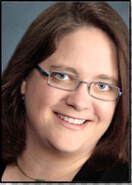
Joy Anderson
President and Founder of Criterion Institute and with a PhD in History from New York University, Joy is highly experienced in thinking about how to shift complex systems, particularly finance, and widely and delightfully connected in this regard. She is also visiting faculty at Wesleyan University and a fellow at Christian Theological Seminary. Her particular areas of specialization and research interests include finance, investing, the systems that manage our economies, church structures, connections between theology and economic relationships, and gender analysis. With wide-ranging professional experience, she both founded and has run Criterion for the last 13 years, as well as founding a venture fund which is one of the leaders in impact investing, leading a movement around investing with a gender lens, and a campaign to have 1000 churches invest in microbusinesses in their communities as a way for them to engage in theological reflection about their economic relationships. With a ‘cool family’ and a heady life, Joy wants people to believe that they can change the systems of the economy.
President and Founder of Criterion Institute and with a PhD in History from New York University, Joy is highly experienced in thinking about how to shift complex systems, particularly finance, and widely and delightfully connected in this regard. She is also visiting faculty at Wesleyan University and a fellow at Christian Theological Seminary. Her particular areas of specialization and research interests include finance, investing, the systems that manage our economies, church structures, connections between theology and economic relationships, and gender analysis. With wide-ranging professional experience, she both founded and has run Criterion for the last 13 years, as well as founding a venture fund which is one of the leaders in impact investing, leading a movement around investing with a gender lens, and a campaign to have 1000 churches invest in microbusinesses in their communities as a way for them to engage in theological reflection about their economic relationships. With a ‘cool family’ and a heady life, Joy wants people to believe that they can change the systems of the economy.
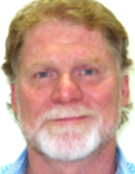
Kevin Barnett
Kevin, DrPH, MCP a senior investigator at the Public Health Institute, works in the intersection of health care, public health, and communities, with a focus on eliminating inequities and advancing social justice. His work emphasizes engagement of diverse stakeholders to address the root causes of health problems, working across sectors to align a broad spectrum of resources, assets and passions to make a difference in the lives of people from all walks of life. On a number of boards, from Trinity Health, a large, Catholic nonprofit health system, to Communities Joined in Action, a small but mighty national association of community health coalitions, he also has been a thought leader of the Stakeholder Health movement since its inception. When he’s not running around like a chicken with it’s head cut off, he relishes moments of solitude hiking in the backcountry, and relaxing with his wife Alison and son David.
Kevin, DrPH, MCP a senior investigator at the Public Health Institute, works in the intersection of health care, public health, and communities, with a focus on eliminating inequities and advancing social justice. His work emphasizes engagement of diverse stakeholders to address the root causes of health problems, working across sectors to align a broad spectrum of resources, assets and passions to make a difference in the lives of people from all walks of life. On a number of boards, from Trinity Health, a large, Catholic nonprofit health system, to Communities Joined in Action, a small but mighty national association of community health coalitions, he also has been a thought leader of the Stakeholder Health movement since its inception. When he’s not running around like a chicken with it’s head cut off, he relishes moments of solitude hiking in the backcountry, and relaxing with his wife Alison and son David.
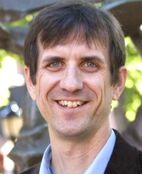
Matthew Bersagel Braley
Matthew, Associate Professor in Philosophy, Viterbo University and former chair of the graduate program in Servant Leadership, holds a Ph.D. in Religion on social ethics and human rights from Emory University. Past fellow at the Center for Health, Culture and Society at Emory’s Rollins School of Public Health he is a current Fellow at the D.B. Reinhart Institute for Ethics in Leadership at Viterbo. He was fortunate in graduate school to be introduced to the work of the International Religious Health Assets Program (IRHAP), an international network of scholars and practitioners employing assets-based development approaches to understand the intersection of religion and health care systems globally. He continues to draw on the religious health assets framework (and the generosity of other IRHAPians) for organizing his research and teaching, especially in relation to sociological and theological understandings of participation in an imperfect world. As part of the La Crosse community’s Population Health Committee he helps plan its annual Health Summit. Previously he was Executive Director of STAR, a university-community partnership in Atlanta highlighting reconciliation practices in U.S. communities confronting legacies of racial violence. He is passionate about getting students out of the classroom and into the community to serve and learn – in his hometown, La Crosse, Wisconsin as well as in Africa and the African Diaspora – on the intersection of health, race, religion, and social justice.
Matthew, Associate Professor in Philosophy, Viterbo University and former chair of the graduate program in Servant Leadership, holds a Ph.D. in Religion on social ethics and human rights from Emory University. Past fellow at the Center for Health, Culture and Society at Emory’s Rollins School of Public Health he is a current Fellow at the D.B. Reinhart Institute for Ethics in Leadership at Viterbo. He was fortunate in graduate school to be introduced to the work of the International Religious Health Assets Program (IRHAP), an international network of scholars and practitioners employing assets-based development approaches to understand the intersection of religion and health care systems globally. He continues to draw on the religious health assets framework (and the generosity of other IRHAPians) for organizing his research and teaching, especially in relation to sociological and theological understandings of participation in an imperfect world. As part of the La Crosse community’s Population Health Committee he helps plan its annual Health Summit. Previously he was Executive Director of STAR, a university-community partnership in Atlanta highlighting reconciliation practices in U.S. communities confronting legacies of racial violence. He is passionate about getting students out of the classroom and into the community to serve and learn – in his hometown, La Crosse, Wisconsin as well as in Africa and the African Diaspora – on the intersection of health, race, religion, and social justice.
|
(DrPH), President and co-founder of HC2 Strategies, co-chair of Stakeholder Health, is former VP for Community Health Investment at Providence, and founder & Chair of Partners for Better Health, which promotes health initiatives in communities. She has spent two decades putting healthcare plans in place that are strategic, effective, and ‘downright creative’. Aware that proactive health policy requires innovative thinking and action, she has been a key thought leader and innovator spearheading (“creating and driving”) strategic plans for health systems. Looking at needs assessment, implementation, strategy, advisement, coalition building, systems and policy changes – the many spokes in today’s healthcare wheel – she drives meaningful change in the ever-shifting healthcare environment. She lives in Southern California with husband Tom, and has two grown daughters.
|
-
Bongmba, Elias
-
Christensen, Heidi
-
Cochrane, Jim
-
Cutts, Teresa
-
Dlamini, Nomvula
-
Crawford-Browne, Sarah
<
>
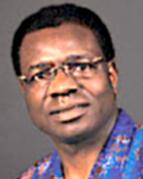
Elias Bongmba
Elias holds the Harry and Hazel Chavanne in Christian Theology and is Professor of Religious Studies at Rice University in the USA. He holds a PhD in the Joint Program at lliff School of Theology and University of Denver, 1995, and is a Faculty Associate at Wless College. He is Also Managing Editor of Religious Studies Reviews as well as the Bulletin of the Council for Societies for the Study of Religion. His primary areas of teaching include African an African Diaspora Religious; African Christianity/Theology Hermeneutics and Theology; Contemporary Theology and Ethics, whilst his secondary teaching areas include 19th Century Theology and Philosophy of Religion, African Studies; Philosophy/Ethics. His book, The Dialectics of Transformation in Africa, won The 2007 Franz Prize for outstanding work in Caribbean thought, awarded by the Caribbean Philosophical Association.
Elias holds the Harry and Hazel Chavanne in Christian Theology and is Professor of Religious Studies at Rice University in the USA. He holds a PhD in the Joint Program at lliff School of Theology and University of Denver, 1995, and is a Faculty Associate at Wless College. He is Also Managing Editor of Religious Studies Reviews as well as the Bulletin of the Council for Societies for the Study of Religion. His primary areas of teaching include African an African Diaspora Religious; African Christianity/Theology Hermeneutics and Theology; Contemporary Theology and Ethics, whilst his secondary teaching areas include 19th Century Theology and Philosophy of Religion, African Studies; Philosophy/Ethics. His book, The Dialectics of Transformation in Africa, won The 2007 Franz Prize for outstanding work in Caribbean thought, awarded by the Caribbean Philosophical Association.
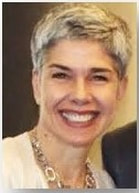
Heidi Christensen
Heidi, MTS, is Public Affairs Specialist at the Center for Faith and Opportunity Initiatives, U.S. Dept. of Health and Human Services. Her efforts focus on strengthening the capacity of faith and community organizations to respond to critical public health issues. Heidi has coordinated coalitions of diverse faith and community-based partners to address critical health issues including childhood obesity, diabetes, access to care, and the epidemic of addiction, as well as the social and economic issues challenging the health of our nation’s communities. In response to the opioid crisis, she created the Opioid Crisis Practical Toolkit for Faith and Community (now in its fourth edition) and the recently released Roadmap to Recovery Support for Faith and Community Leaders: Getting Back to Work. Previously, at the Center for Interfaith Action on Global Poverty, she supported U.S. faith-based organizations on collaborative efforts addressing malaria and other health issues affecting the developing world. She holds a master's degree in systematic theology and is a practicing visual artist exhibiting her work in Washington, DC and Boston area.
Heidi, MTS, is Public Affairs Specialist at the Center for Faith and Opportunity Initiatives, U.S. Dept. of Health and Human Services. Her efforts focus on strengthening the capacity of faith and community organizations to respond to critical public health issues. Heidi has coordinated coalitions of diverse faith and community-based partners to address critical health issues including childhood obesity, diabetes, access to care, and the epidemic of addiction, as well as the social and economic issues challenging the health of our nation’s communities. In response to the opioid crisis, she created the Opioid Crisis Practical Toolkit for Faith and Community (now in its fourth edition) and the recently released Roadmap to Recovery Support for Faith and Community Leaders: Getting Back to Work. Previously, at the Center for Interfaith Action on Global Poverty, she supported U.S. faith-based organizations on collaborative efforts addressing malaria and other health issues affecting the developing world. She holds a master's degree in systematic theology and is a practicing visual artist exhibiting her work in Washington, DC and Boston area.
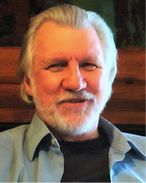
Jim Cochrane
Emeritus Professor, (BSc, MDiv, PhD, DDiv h.c.), Department of Religious Studies, and Senior Research Associate in the School of Public Health and Family Medicine, at the University of Cape Town. Jim manages the Leading Causes of Life Initiative in partnership with Prof Gary Gunderson, Wake Forest University, NC, USA. Previously Director of the Research Institute on Christianity and Society in Africa, he is also Co-Director of the International/African Religious Health Assets Programme Hub at the University of Cape Town. His more recent research has been mainly in religion and public health, and religion in public life generally, including studies in social ethics, ‘community wisdom,’ and globalization. With LCLI Fellow Doug McGaughey, he has written a forthcoming book (2017) on The Human Spirit: Groundwork that is one outcome of his involvement with the Leading Causes of Life Initiative. A previous editor of the Journal of Theology for Southern Africa and of the New South African Outlook, his other publications include Religion and the Health of the Public: Shifting the Paradigm (with Gary Gunderson), Circles of Dignity: Theological Reflection and Community Wisdom, and Servants of Power: English Speaking Churches in South Africa, 1903-1930, as well as several edited volumes (most recently, When Religion and Health Align: Mobilizing Religious Health Assets for Transformation, with Barbara Schmid & Teresa Cutts), and over 200 essays, articles and other publications.
Emeritus Professor, (BSc, MDiv, PhD, DDiv h.c.), Department of Religious Studies, and Senior Research Associate in the School of Public Health and Family Medicine, at the University of Cape Town. Jim manages the Leading Causes of Life Initiative in partnership with Prof Gary Gunderson, Wake Forest University, NC, USA. Previously Director of the Research Institute on Christianity and Society in Africa, he is also Co-Director of the International/African Religious Health Assets Programme Hub at the University of Cape Town. His more recent research has been mainly in religion and public health, and religion in public life generally, including studies in social ethics, ‘community wisdom,’ and globalization. With LCLI Fellow Doug McGaughey, he has written a forthcoming book (2017) on The Human Spirit: Groundwork that is one outcome of his involvement with the Leading Causes of Life Initiative. A previous editor of the Journal of Theology for Southern Africa and of the New South African Outlook, his other publications include Religion and the Health of the Public: Shifting the Paradigm (with Gary Gunderson), Circles of Dignity: Theological Reflection and Community Wisdom, and Servants of Power: English Speaking Churches in South Africa, 1903-1930, as well as several edited volumes (most recently, When Religion and Health Align: Mobilizing Religious Health Assets for Transformation, with Barbara Schmid & Teresa Cutts), and over 200 essays, articles and other publications.
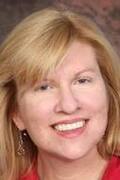
Teresa Cutts
TC, as most know her, is Asst. Research Professor, Wake Forest School of Medicine, Winston Salem, NC and part of the Secretariat, Stakeholder Health. Past Director of Research for Innovation, Centre of Excellence in Faith and Health, Methodist Le Bonheur Healthcare, Memphis, adjunct academic appointments at the University of Cape Town’s School of Public Health and Family Medicine, University of Tennessee’s College of Medicine’s departments of Preventative Medicine and Psychiatry, University of Memphis’ School of Public Health and Healthcare administration, and Memphis Theological Seminary. She has been instrumental in helping design and create clinical and community-based applications of the Leading Causes of Life framework, including the Life of Leaders (executive physical for clergy and other leaders’ health), survey instruments for clergy and lay persons used in primary care settings and in other sites focused on preventive medicine, as well as serving as a plenary leader outlining the ‘found science’ under-girding Leading Causes of Life in the two day workshop done for local United Methodist Church leaders (along with Dr Gary Gunderson and Rev. Larry Pray). She has served as Primary Investigator (PI) and Co-PI on numerous large scale grants, including co-site research of a community based intervention to promote peace and safety among minority males in Memphis, along with research from the Medical Research Council and University of South Africa, Centres for Disease Control and Prevention work on building capacity for influenza awareness, prevention and treatment in faith communities and developing a Community Health Record to combat obesity and cardiovascular disease, as well as serving as a multi-year consultant on Quality of Life for patients with gastrointestinal motility disorders. Most recently, she serves as Co-PI on RWJF funded initiative for Stakeholder Health, a learning collaborative of over 50 healthcare systems representing several hundred individual hospitals across the USA, in conjunction the federal Health and Human Services, and the White House, aimed at strengthening community partnership for healthcare via innovative strategies to improve the health of vulnerable populations. She has authored numerous articles in the medical and faith/health field and edited and/or co-authored one book and several book chapters.
TC, as most know her, is Asst. Research Professor, Wake Forest School of Medicine, Winston Salem, NC and part of the Secretariat, Stakeholder Health. Past Director of Research for Innovation, Centre of Excellence in Faith and Health, Methodist Le Bonheur Healthcare, Memphis, adjunct academic appointments at the University of Cape Town’s School of Public Health and Family Medicine, University of Tennessee’s College of Medicine’s departments of Preventative Medicine and Psychiatry, University of Memphis’ School of Public Health and Healthcare administration, and Memphis Theological Seminary. She has been instrumental in helping design and create clinical and community-based applications of the Leading Causes of Life framework, including the Life of Leaders (executive physical for clergy and other leaders’ health), survey instruments for clergy and lay persons used in primary care settings and in other sites focused on preventive medicine, as well as serving as a plenary leader outlining the ‘found science’ under-girding Leading Causes of Life in the two day workshop done for local United Methodist Church leaders (along with Dr Gary Gunderson and Rev. Larry Pray). She has served as Primary Investigator (PI) and Co-PI on numerous large scale grants, including co-site research of a community based intervention to promote peace and safety among minority males in Memphis, along with research from the Medical Research Council and University of South Africa, Centres for Disease Control and Prevention work on building capacity for influenza awareness, prevention and treatment in faith communities and developing a Community Health Record to combat obesity and cardiovascular disease, as well as serving as a multi-year consultant on Quality of Life for patients with gastrointestinal motility disorders. Most recently, she serves as Co-PI on RWJF funded initiative for Stakeholder Health, a learning collaborative of over 50 healthcare systems representing several hundred individual hospitals across the USA, in conjunction the federal Health and Human Services, and the White House, aimed at strengthening community partnership for healthcare via innovative strategies to improve the health of vulnerable populations. She has authored numerous articles in the medical and faith/health field and edited and/or co-authored one book and several book chapters.
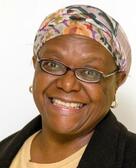
Nomvula Dlamini
Nomvula is an advocate for gender equality and women’s empowerment, she has worked in the civil society space for the past 27 years with social justice organisations & movements as facilitator of group & organisational change/learning processes and stakeholder dialogues/collaborations. Connected to this work, accompanying and mentoring emergent leaders and social change practitioners has been and remains something she is deeply passionate about. She has recently become part of a team of facilitators, healers and counsellors committed to offering Deep Wellness Retreats to provide a supportive and nurturing space for women to rediscover and strengthen the life-affirming resources that sustain them as leaders and help uncover what it means, personally and collectively, what it means to be on a path to deep wellness. She continues to serve on the boards of civil society organisations and foundations focused on women’s empowerment, social justice and creating access to education for young people from households disadvantaged by post-apartheid inequality, marginalisaton and poverty. She has published written offerings and has collaborated as writer to Barefoot Guides 2, 4 and 6 (www.barefootguide.org).
Nomvula is an advocate for gender equality and women’s empowerment, she has worked in the civil society space for the past 27 years with social justice organisations & movements as facilitator of group & organisational change/learning processes and stakeholder dialogues/collaborations. Connected to this work, accompanying and mentoring emergent leaders and social change practitioners has been and remains something she is deeply passionate about. She has recently become part of a team of facilitators, healers and counsellors committed to offering Deep Wellness Retreats to provide a supportive and nurturing space for women to rediscover and strengthen the life-affirming resources that sustain them as leaders and help uncover what it means, personally and collectively, what it means to be on a path to deep wellness. She continues to serve on the boards of civil society organisations and foundations focused on women’s empowerment, social justice and creating access to education for young people from households disadvantaged by post-apartheid inequality, marginalisaton and poverty. She has published written offerings and has collaborated as writer to Barefoot Guides 2, 4 and 6 (www.barefootguide.org).
|
A clinical social worker who sparks undergraduate medical students' curiosity in the social and psychological dynamics that shape people's experiences of health and wellbeing in South Africa. She is a lecturer within the University of Cape Town’s Department of Family, Community, and Emergency Care. Her doctoral research lies in understanding how people make meaning of living in a high violence community in Cape Town, and how this shapes their responses to continuous traumatic stress. Sarah's current teaching and research is grounded in her twenty years of working as a community-based trauma therapist in Cape Town, Sierra Leone, Pakistan, Afghanistan, Uganda, and southern Sudan. Her husband, Deon Snyman is the director at Goedgedacht, a rural development olive farm outside of Cape Town. She supports Deon in building Goedgedacht into a place of hope. Encouraged by Archbishop Desmond’s statement that “hope is being able to see that there is light despite all of the darkness”, we seek to create a place where Hope can be found.
|
-
Easterling, Doug
-
Eng, Euginia
-
Engebretson, Sharon
-
Essien, Joyce
-
Fleming, Shirley
<
>
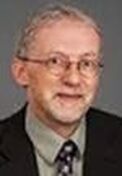
Douglas Easterling
Professor in the Department of Social Sciences and Health Policy at Wake Forest School of Medicine, Doug served as department chair from 2005-2015. Prior to coming to Wake Forest, he was a division director within the Center for Youth, Family and Community Partnerships at the University of North Carolina at Greensboro. At both Wake Forest and UNCG, Doug has worked as an evaluator, strategic advisor and facilitator for national, state, and local foundations, as well as a variety of non-profit organizations and government agencies. He also served as the Director of Research and Evaluation at The Colorado Trust, a health foundation in Denver. Doug has written and presented extensively on the topics of program evaluation, strategic philanthropy, social capital, community capacity, collaboration, civic leadership and systems change. He holds a Ph.D. in Public Policy and Management from the Wharton School, an M.A. in Quantitative Psychology from the University of North Carolina, and a B.A. from Carleton College. Doug loves writing, dog training, exploring indigenous spirituality and healing, and travel—to mountains and desert! Above all, he seeks to be part of processes, experiences and communities where people grow, evolve and step into their power.
Professor in the Department of Social Sciences and Health Policy at Wake Forest School of Medicine, Doug served as department chair from 2005-2015. Prior to coming to Wake Forest, he was a division director within the Center for Youth, Family and Community Partnerships at the University of North Carolina at Greensboro. At both Wake Forest and UNCG, Doug has worked as an evaluator, strategic advisor and facilitator for national, state, and local foundations, as well as a variety of non-profit organizations and government agencies. He also served as the Director of Research and Evaluation at The Colorado Trust, a health foundation in Denver. Doug has written and presented extensively on the topics of program evaluation, strategic philanthropy, social capital, community capacity, collaboration, civic leadership and systems change. He holds a Ph.D. in Public Policy and Management from the Wharton School, an M.A. in Quantitative Psychology from the University of North Carolina, and a B.A. from Carleton College. Doug loves writing, dog training, exploring indigenous spirituality and healing, and travel—to mountains and desert! Above all, he seeks to be part of processes, experiences and communities where people grow, evolve and step into their power.
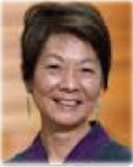
Euginia Eng
Professor of Health Behaviour, Gillings School of Global Public Health, University of North Carolina at Chapel Hill, Geni focuses on the relevance and measurement of the concept of community competence as an outcome of community-based interventions. She has done extensive fieldwork in rural villages of Togo, Indonesia, and African American communities in the Mississippi Delta and North Carolina. She also works on the lay health advisor (LHA) intervention model, based on the concept of natural helping across social networks in ethnic minority populations, and on applying the Action-Oriented Community Diagnosis. Previously Director of the Kellogg Health Scholars Program in community-based participatory research (CBPR), Geni also enjoys piano, jazz and all things West African.
Professor of Health Behaviour, Gillings School of Global Public Health, University of North Carolina at Chapel Hill, Geni focuses on the relevance and measurement of the concept of community competence as an outcome of community-based interventions. She has done extensive fieldwork in rural villages of Togo, Indonesia, and African American communities in the Mississippi Delta and North Carolina. She also works on the lay health advisor (LHA) intervention model, based on the concept of natural helping across social networks in ethnic minority populations, and on applying the Action-Oriented Community Diagnosis. Previously Director of the Kellogg Health Scholars Program in community-based participatory research (CBPR), Geni also enjoys piano, jazz and all things West African.
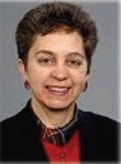
Sharon Engebretson
Trained in Clinical Pastoral Education, Sharon is Associate Vice President in the Division of Faith & Health Ministries at Wake Forest Baptist Health. She administers the division’s operational and strategic ministry initiatives, serves on the Medical Center’s Council for Inclusion and Diversity, and is also Adjunct Faculty at Wake Forest Divinity School. An ordained Methodist (Chicago/Illinois), she has held Board positions for the Association of Clinical Pastoral Educators, chairing several of the ACPE committees along the way and is also on the Advisory Board, Community Partnership for End of Life Care. Sharon has been key to supporting the LCL Initiative out of Wake Forest. When not carrying out all her formal duties, or immersing herself in a variety of literatures, she is also a lover of horses and the great outdoors.
Trained in Clinical Pastoral Education, Sharon is Associate Vice President in the Division of Faith & Health Ministries at Wake Forest Baptist Health. She administers the division’s operational and strategic ministry initiatives, serves on the Medical Center’s Council for Inclusion and Diversity, and is also Adjunct Faculty at Wake Forest Divinity School. An ordained Methodist (Chicago/Illinois), she has held Board positions for the Association of Clinical Pastoral Educators, chairing several of the ACPE committees along the way and is also on the Advisory Board, Community Partnership for End of Life Care. Sharon has been key to supporting the LCL Initiative out of Wake Forest. When not carrying out all her formal duties, or immersing herself in a variety of literatures, she is also a lover of horses and the great outdoors.
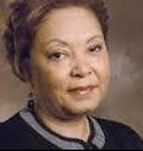
Joyce Essien
With an MD and MBA, Joyce is a retired Captain, US Public Health Service, Centers for Disease Control and Prevention; retired Director, Center for Public Health Practice, Rollins School of Public Health, Emory University. A Board Certified Pathologist in Anatomic and Clinical Pathology, her current focus on interdisciplinary and inter-sectoral translation research leverages the evidence base to make progress toward system scale change for health and equity. She provides leadership coaching for cross-sectoral teams nationally for the Public Health Institute’s National Leadership Academy for the Public’s Health. She served on the 2014 ProjectAdvisory Committee of the Institute for Alternative Futures publication, Public Health Scenario 2030: A Scenario Exploration; and the Institute of Medicine Committees on the Assessment of Resiliency and Prevention Programs for Mental and Behavioral Health in Service Members and Their Families (2013-2014); and the Committee on Public Health Strategies (2009-2012). She serves on the boards of the Blue Cross Blue Shield Healthcare Plan of Georgia, Inc. and AMGP Georgia Managed Care Company, Inc.
With an MD and MBA, Joyce is a retired Captain, US Public Health Service, Centers for Disease Control and Prevention; retired Director, Center for Public Health Practice, Rollins School of Public Health, Emory University. A Board Certified Pathologist in Anatomic and Clinical Pathology, her current focus on interdisciplinary and inter-sectoral translation research leverages the evidence base to make progress toward system scale change for health and equity. She provides leadership coaching for cross-sectoral teams nationally for the Public Health Institute’s National Leadership Academy for the Public’s Health. She served on the 2014 ProjectAdvisory Committee of the Institute for Alternative Futures publication, Public Health Scenario 2030: A Scenario Exploration; and the Institute of Medicine Committees on the Assessment of Resiliency and Prevention Programs for Mental and Behavioral Health in Service Members and Their Families (2013-2014); and the Committee on Public Health Strategies (2009-2012). She serves on the boards of the Blue Cross Blue Shield Healthcare Plan of Georgia, Inc. and AMGP Georgia Managed Care Company, Inc.

Shirley Eloby Fleming
Shirley, Dr. Rev. is a long-time advocate for equity and social justice in health and human services, working for more than thirty years in public health locally and nationally as a provider, administrator and advocate to assure that all people, especially those who are disadvantaged, have the opportunity to enjoy the highest level of health and engagement in human society. Until March, 2004, she was second ranking public health officer for the City at the Chicago Department of Public Health, retiring from this position to attend seminary and do the work of health, healing and social justice, focused on the faith beliefs and practices of those who live on the margins. Since 2013 she has been co-director of The Center for Faith and Community Health Transformation, a collaborative between Advocate’s Health Care and the Office for Community Engagement and Neighborhood Health Partnerships at the University of Illinois at Chicago. Shirley is the recipient several local and national awards, and served on numerous local and national academic, faith-based and governmental boards that are focused on understanding and eliminating health inequity across the life cycle, with a special passion for community-driven strategies for improving maternal and child health.
Shirley, Dr. Rev. is a long-time advocate for equity and social justice in health and human services, working for more than thirty years in public health locally and nationally as a provider, administrator and advocate to assure that all people, especially those who are disadvantaged, have the opportunity to enjoy the highest level of health and engagement in human society. Until March, 2004, she was second ranking public health officer for the City at the Chicago Department of Public Health, retiring from this position to attend seminary and do the work of health, healing and social justice, focused on the faith beliefs and practices of those who live on the margins. Since 2013 she has been co-director of The Center for Faith and Community Health Transformation, a collaborative between Advocate’s Health Care and the Office for Community Engagement and Neighborhood Health Partnerships at the University of Illinois at Chicago. Shirley is the recipient several local and national awards, and served on numerous local and national academic, faith-based and governmental boards that are focused on understanding and eliminating health inequity across the life cycle, with a special passion for community-driven strategies for improving maternal and child health.
-
Gesser-Edelsburg, Anat
-
Gunderson, Gary
-
Haugstad, Tor
-
Idler, Ellen
-
Jonas, Marcellino
<
>
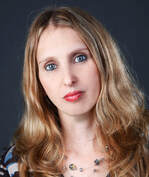
Anat Gesser-Edelsburg
Anat (BA, PhD) is associate professor and head of the Health Promotion Program, School of Public Health, Faculty of Social Welfare and Health Sciences, and the Founding Director of the Health and Risk Communication Research Center, University of Haifa. Associate Editor of Disaster Medicine and Public Health Preparedness and BMC Public Health, she also recently published Risk Communication and Infectious Diseases in an Age of Digital Media (Routledge, 2016). A researcher at The Center for Evaluation of Health Promotion Interventions and the Emili Sagol Creative Arts Therapies Research Center, University of Haifa, Anat has won or collaborated in many research grants and published extensively. Anat also did Post-Doc research against Hate and Bigotry at the Minerva Center for Human Rights, Faculty of Law, Hebrew University of Jerusalem. Her areas of research include health and risk communication, positive deviance, social marketing, persuasive communication, health-promotion programs, entertainment-education and qualitative research, focusing on such issues as emerging infectious disease (EID) communication, vaccination compliance, drugs and alcohol abuse, drinking-and-driving, sex education, nutrition, and hospital-acquired infections prevention.
Anat (BA, PhD) is associate professor and head of the Health Promotion Program, School of Public Health, Faculty of Social Welfare and Health Sciences, and the Founding Director of the Health and Risk Communication Research Center, University of Haifa. Associate Editor of Disaster Medicine and Public Health Preparedness and BMC Public Health, she also recently published Risk Communication and Infectious Diseases in an Age of Digital Media (Routledge, 2016). A researcher at The Center for Evaluation of Health Promotion Interventions and the Emili Sagol Creative Arts Therapies Research Center, University of Haifa, Anat has won or collaborated in many research grants and published extensively. Anat also did Post-Doc research against Hate and Bigotry at the Minerva Center for Human Rights, Faculty of Law, Hebrew University of Jerusalem. Her areas of research include health and risk communication, positive deviance, social marketing, persuasive communication, health-promotion programs, entertainment-education and qualitative research, focusing on such issues as emerging infectious disease (EID) communication, vaccination compliance, drugs and alcohol abuse, drinking-and-driving, sex education, nutrition, and hospital-acquired infections prevention.
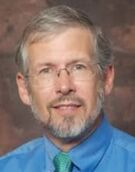
Gary Gunderson
Vice President for FaithHealth, Professor of Public Health Sciences, & of Religion & the Health of the Public, Wake Forest Baptist Medical Centre & Wake Forest University. The medical center serves tobacco country up into the Appalachian mountains, the heart of the deaths of despair. Gary has invested his grown-up years working in hunger/poverty and community development, public health and health care, including 8 years at the Carter Centre and Rollins School of Public Health, Emory University, and 7 years as a senior executive, Methodist LeBonheur Healthcare, Memphis. He quit eating read meat after traveling across the country listening to community activists and seeing the deep interconnection between health, justice and climate. He is a writer, woodturner, beekeeper and hiker, which tells more than the academics, and currently chair of Democratic precinct 601 in Winston-Salem.
Vice President for FaithHealth, Professor of Public Health Sciences, & of Religion & the Health of the Public, Wake Forest Baptist Medical Centre & Wake Forest University. The medical center serves tobacco country up into the Appalachian mountains, the heart of the deaths of despair. Gary has invested his grown-up years working in hunger/poverty and community development, public health and health care, including 8 years at the Carter Centre and Rollins School of Public Health, Emory University, and 7 years as a senior executive, Methodist LeBonheur Healthcare, Memphis. He quit eating read meat after traveling across the country listening to community activists and seeing the deep interconnection between health, justice and climate. He is a writer, woodturner, beekeeper and hiker, which tells more than the academics, and currently chair of Democratic precinct 601 in Winston-Salem.
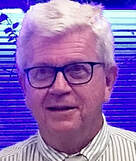
Tor S. Haugstad
Tor was born in India, where he spent his childhood and youth as son of medical missionary Edel Busch Haugstad and Reverend Magnus Haugstad. Married to Gro, a Professor of Physiotherapy, and father of three children with four grandchildren, he is currently Chief Consultant, MD (Oslo, 1977), PhD (Oslo, 1996) and Neurology specialist (Board certified, Norway, 1994) at the Sunnaas Rehabilitation Hospital, Norway. He has served on a number of boards nationally and internationally in relation to Health and Human Rights, Medical Missions, and the Healing Ministry of the Church of Norway, and has published in the area of Medical Philosophy, the Healing Ministry of the Church, the Hereditary Ataxias, Mechanisms of Amino Acid Transport in the Mammalian Brain, and Mechanisms and Treatment Options for Longstanding Pain. He chairs a Department for Rehabilitation of Traumatic Brain Injury, as well as Programmes for Health and Human Rights and for Religious Health Assets in Norway. Having spent much of his professional life combating diseases and helping people regain function after serious injuries, he knows there is much more to life and health than fighting the causes of death. Life, immensely richer and more important than the absence of death, requires in his view a generative spirit that both transcends and permeates the physical universe, embracing all humans with love and instigating hope even in the face of death.
Tor was born in India, where he spent his childhood and youth as son of medical missionary Edel Busch Haugstad and Reverend Magnus Haugstad. Married to Gro, a Professor of Physiotherapy, and father of three children with four grandchildren, he is currently Chief Consultant, MD (Oslo, 1977), PhD (Oslo, 1996) and Neurology specialist (Board certified, Norway, 1994) at the Sunnaas Rehabilitation Hospital, Norway. He has served on a number of boards nationally and internationally in relation to Health and Human Rights, Medical Missions, and the Healing Ministry of the Church of Norway, and has published in the area of Medical Philosophy, the Healing Ministry of the Church, the Hereditary Ataxias, Mechanisms of Amino Acid Transport in the Mammalian Brain, and Mechanisms and Treatment Options for Longstanding Pain. He chairs a Department for Rehabilitation of Traumatic Brain Injury, as well as Programmes for Health and Human Rights and for Religious Health Assets in Norway. Having spent much of his professional life combating diseases and helping people regain function after serious injuries, he knows there is much more to life and health than fighting the causes of death. Life, immensely richer and more important than the absence of death, requires in his view a generative spirit that both transcends and permeates the physical universe, embracing all humans with love and instigating hope even in the face of death.
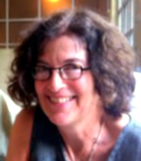
Ellen Idler
Samuel Candler Dobbs Professor of Sociology at Emory's Religion and Public Health Collaborative, with additional appointments at the Rollins School of Public Health, Emory's Center for Ethics, and the Graduate Division of Religion. In this very interdisciplinary environment she teaches graduate and undergraduate courses across schools on a variety of topics including religion and public health, sociological aspects of health and illness, epidemiology of aging, comparative health systems, and social gerontology. She is the editor and contributing author of Religion as a Social Determinant of Public Health (Oxford 2014). Current research interests include the determinants and consequences of global self-ratings of health, the role of chaplains in palliative care, and religion as a factor in community and individual health.
Samuel Candler Dobbs Professor of Sociology at Emory's Religion and Public Health Collaborative, with additional appointments at the Rollins School of Public Health, Emory's Center for Ethics, and the Graduate Division of Religion. In this very interdisciplinary environment she teaches graduate and undergraduate courses across schools on a variety of topics including religion and public health, sociological aspects of health and illness, epidemiology of aging, comparative health systems, and social gerontology. She is the editor and contributing author of Religion as a Social Determinant of Public Health (Oxford 2014). Current research interests include the determinants and consequences of global self-ratings of health, the role of chaplains in palliative care, and religion as a factor in community and individual health.

Marcellino Jonas
Marcellino grew up and lives in The Strand, Western Cape, between mountains and sea. A singleton, self-identified Gay man raised in a Coloured, female-headed, single-parent family. Brought up in a Dutch Reformed Christian household he now identifies as non-sectarian spiritual. A Pisces with a childhood curiosity in metaphysics and social sciences, he’s also an avid reader, whose youth was misspent as a volunteer locked up in the local library. Marcellino is an alumnus of the Raymond Ackerman Academy Of Entrepreneurial Development. He believes in the power of art, as transcending lifetimes and its ability to change worldviews and eventually material circumstances. Marcellino was a community researcher in the SCRATCHMAPS (Spiritual Capacities and Religious Health Assets for Transforming Community Health: Mobilizing Males for Peace and Safety) Project and is currently secretary to the Building Bridges Mentoring Programme. He is a believer in self education as being more significant than formal curricula. Marcellino is a neophile with an aversion to social media.
Marcellino grew up and lives in The Strand, Western Cape, between mountains and sea. A singleton, self-identified Gay man raised in a Coloured, female-headed, single-parent family. Brought up in a Dutch Reformed Christian household he now identifies as non-sectarian spiritual. A Pisces with a childhood curiosity in metaphysics and social sciences, he’s also an avid reader, whose youth was misspent as a volunteer locked up in the local library. Marcellino is an alumnus of the Raymond Ackerman Academy Of Entrepreneurial Development. He believes in the power of art, as transcending lifetimes and its ability to change worldviews and eventually material circumstances. Marcellino was a community researcher in the SCRATCHMAPS (Spiritual Capacities and Religious Health Assets for Transforming Community Health: Mobilizing Males for Peace and Safety) Project and is currently secretary to the Building Bridges Mentoring Programme. He is a believer in self education as being more significant than formal curricula. Marcellino is a neophile with an aversion to social media.
-
Jones, Maria
-
Kalula, Evance
-
Kisare, Mosi
-
Kleinschmidt, Horst
-
Lapsley, Michael
-
Klein, Bastienne
<
>
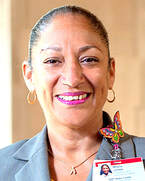
Maria Teresa Jones
Maria (M.Div, BCC, SD) is a native of San Juan, Puerto Rico, and an ordained minister with the United Church of Christ serving as associate pastor of Green Street United Methodist Church, Winston Salem. A board certified chaplain through the Association of Professional Chaplains and a Spiritual Director, she currently serves as the Chaplaincy Program Manager for Staff Support of Wake Forest Baptist Medical Center, Winston Salem. In her role at Wake Forest, she works with healthcare providers, faculty, and staff to provide spiritual support and grief counseling. In addition, she provides support and education on compassion fatigue, burnout, and moral distress with emphasis on self-care/self-compassion, and emotional resiliency. Passionate about justice in and for Puerto Rico, Maria is a veteran of the United States army, a retired ballet dancer, and mother of three adult daughters: Nina (40), Melissa (38), and Jessica (36).
Maria (M.Div, BCC, SD) is a native of San Juan, Puerto Rico, and an ordained minister with the United Church of Christ serving as associate pastor of Green Street United Methodist Church, Winston Salem. A board certified chaplain through the Association of Professional Chaplains and a Spiritual Director, she currently serves as the Chaplaincy Program Manager for Staff Support of Wake Forest Baptist Medical Center, Winston Salem. In her role at Wake Forest, she works with healthcare providers, faculty, and staff to provide spiritual support and grief counseling. In addition, she provides support and education on compassion fatigue, burnout, and moral distress with emphasis on self-care/self-compassion, and emotional resiliency. Passionate about justice in and for Puerto Rico, Maria is a veteran of the United States army, a retired ballet dancer, and mother of three adult daughters: Nina (40), Melissa (38), and Jessica (36).
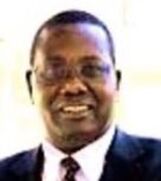
Evance Kalula
Evance (LLB, LLM, PhD; Rhodes Scholar, Balliol College, Oxford) is Director of the International Academic Programmes Office and Confucius Institute, University of Cape Town. He also holds a personal chair as Professor of Employment Law and Social Security. Among many appointments and consultancies, he is or has been human rights fellow and external collaborator in the ILO in Geneva, Switzerland, and African Programme coordinator for Rights and Humanity in London, on the Ministerial Economic Advisory Panel in the Department of Economic Development, President of the International Labour and Employment Relations Association, a member of the Academy of Science of South Africa, on the board of the Children's Institute at UCT, the advisory board of the Labour Law and Development Research Laboratory, McGill University (Montreal). He served as chair of the SA Employment Conditions Commission (2000-2011), on the governing Councils of the Universities of Cape Town and University of Lusaka, Zambia, the advisory board of the Tourism and Business Institute of Southern Africa, and the International Labour Organisation (ILO) Commission of Inquiry into complaints of non-observance by Zimbabwe of freedom of association and collective bargaining conventions, 2008-2010.
Evance (LLB, LLM, PhD; Rhodes Scholar, Balliol College, Oxford) is Director of the International Academic Programmes Office and Confucius Institute, University of Cape Town. He also holds a personal chair as Professor of Employment Law and Social Security. Among many appointments and consultancies, he is or has been human rights fellow and external collaborator in the ILO in Geneva, Switzerland, and African Programme coordinator for Rights and Humanity in London, on the Ministerial Economic Advisory Panel in the Department of Economic Development, President of the International Labour and Employment Relations Association, a member of the Academy of Science of South Africa, on the board of the Children's Institute at UCT, the advisory board of the Labour Law and Development Research Laboratory, McGill University (Montreal). He served as chair of the SA Employment Conditions Commission (2000-2011), on the governing Councils of the Universities of Cape Town and University of Lusaka, Zambia, the advisory board of the Tourism and Business Institute of Southern Africa, and the International Labour Organisation (ILO) Commission of Inquiry into complaints of non-observance by Zimbabwe of freedom of association and collective bargaining conventions, 2008-2010.
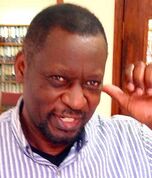
Mosi Kisare
Born and raised on the shores of Lake Victoria in Tanzania, with a B. A. in psychology and M. A. in Rural Social Development, Mosi currently lives in Arusha where he is Executive Director of EASUN Centre for Organizational Learning. His current work is mostly focused on Organization Development (OD) interventions and transformational leadership training with civil society organizations in East Africa. Previously he worked for the Christian Council of Tanzania and All Africa Conference of Churches where he headed development project departments, and focused on “de-projectification” of the development work of churches in Africa. This culminated in an initiative to assess and plan how Christian education and development programmes of churches could together provide a learning platform that would generate awareness and commitment necessary for the Church in Africa to champion needed transformations toward creating a more humane and equitable society. This continues to have an influence on what him in EASUN today. He also participated in founding and facilitating the communications work of a major networking initiative for NGOs in Eastern and Southern Africa (MWENGO), based in Harare, Zimbabwe. The core of his work is to pay attention to building or strengthening the authenticity of leaders and facilitators of learning who support the development of others through a mixture of total engagement and absolute detachment. He believes that developing authenticity in leaders is critical in the African situation where positional leadership, a university degree, or becoming a consultant has the potential to immediately catapult one to the small, privileged class of the elite.
Born and raised on the shores of Lake Victoria in Tanzania, with a B. A. in psychology and M. A. in Rural Social Development, Mosi currently lives in Arusha where he is Executive Director of EASUN Centre for Organizational Learning. His current work is mostly focused on Organization Development (OD) interventions and transformational leadership training with civil society organizations in East Africa. Previously he worked for the Christian Council of Tanzania and All Africa Conference of Churches where he headed development project departments, and focused on “de-projectification” of the development work of churches in Africa. This culminated in an initiative to assess and plan how Christian education and development programmes of churches could together provide a learning platform that would generate awareness and commitment necessary for the Church in Africa to champion needed transformations toward creating a more humane and equitable society. This continues to have an influence on what him in EASUN today. He also participated in founding and facilitating the communications work of a major networking initiative for NGOs in Eastern and Southern Africa (MWENGO), based in Harare, Zimbabwe. The core of his work is to pay attention to building or strengthening the authenticity of leaders and facilitators of learning who support the development of others through a mixture of total engagement and absolute detachment. He believes that developing authenticity in leaders is critical in the African situation where positional leadership, a university degree, or becoming a consultant has the potential to immediately catapult one to the small, privileged class of the elite.
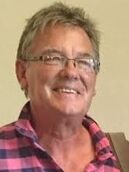
Horst Kleinschmidt
Horst, 'retired' but remains a very busy social activist, also researched Southern African History, German Colonial History, human rights and related matters. He has a longand deep history of political engagement against Apartheid in South Africa, and in building a free and just society since. He worked as Assistant to Beyers Naude, Director of the Christian Institute of SA (banned in 1977), and in exile, was head of the International Defence and Aid Fun d for Southern Africa in London for 10 years. On returning to SA, he worked with Lawyers for Human Rights, Kagiso Trust (a major development funding organisation in Johannesburg), Mvula Trust (implementing water and sanitation supply in rural villages), and as a Civil Servant to the Head of Fisheries section in Government (initially employed to investigate corruption and malpractices). Still very active in civil society, Horst is optimistic that people can change if given, education, self-awareness and exposure.
Horst, 'retired' but remains a very busy social activist, also researched Southern African History, German Colonial History, human rights and related matters. He has a longand deep history of political engagement against Apartheid in South Africa, and in building a free and just society since. He worked as Assistant to Beyers Naude, Director of the Christian Institute of SA (banned in 1977), and in exile, was head of the International Defence and Aid Fun d for Southern Africa in London for 10 years. On returning to SA, he worked with Lawyers for Human Rights, Kagiso Trust (a major development funding organisation in Johannesburg), Mvula Trust (implementing water and sanitation supply in rural villages), and as a Civil Servant to the Head of Fisheries section in Government (initially employed to investigate corruption and malpractices). Still very active in civil society, Horst is optimistic that people can change if given, education, self-awareness and exposure.
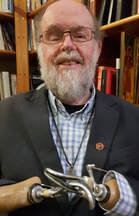
Michael Lapsley
New Zealand born, ordained into the Anglican Society of the Sacred Mission (SSM), Michael came to South Africa in 1973 as a student, and was soon chaplain to students at both black and white universities in Durban. Speaking out in 1976, the year of the Soweto Uprising, on behalf of schoolchildren who were being shot, detained and tortured, he was consequently expelled from the country, went to Lesotho, became a member of the African National Congress and a chaplain to the organisation in exile, and travelled the world to mobilise faith communities to oppose Apartheid. A South African police raid in Maseru in 1982 that killed 42 people forced him to move to Zimbabwe where, in 1990, after Mandela’s release, he was sent a letter bomb by the apartheid regime, losing both hands, sight in one eye, and being seriously burnt. He returned to South Africa in 1992 to become Chaplain of the Trauma Centre for Victims of Violence and Torture in Cape Town, assisting the Truth and Reconciliation Commission (TRC), which led to the establishment in 1998 of the Institute for Healing of Memories in Cape Town. It allows South Africans to tell their stories and work through their trauma, work Michael has also done elsewhere in Africa and the world. He has received several honorary doctorates and been awarded the Queen's Service Medal by New Zealand, also serving as Honorary Consul for New Zealand in Cape Town for 18 years. Fr Michael was Vice President of the South African Council of Churches from 2014-2017. For the fifth anniversary of 9/11 in 2006, he joined terror victims from around the world and families of those killed in the 11 September attacks to create the International Network for Peace to promote effective and nonviolent solutions to terrorism.
New Zealand born, ordained into the Anglican Society of the Sacred Mission (SSM), Michael came to South Africa in 1973 as a student, and was soon chaplain to students at both black and white universities in Durban. Speaking out in 1976, the year of the Soweto Uprising, on behalf of schoolchildren who were being shot, detained and tortured, he was consequently expelled from the country, went to Lesotho, became a member of the African National Congress and a chaplain to the organisation in exile, and travelled the world to mobilise faith communities to oppose Apartheid. A South African police raid in Maseru in 1982 that killed 42 people forced him to move to Zimbabwe where, in 1990, after Mandela’s release, he was sent a letter bomb by the apartheid regime, losing both hands, sight in one eye, and being seriously burnt. He returned to South Africa in 1992 to become Chaplain of the Trauma Centre for Victims of Violence and Torture in Cape Town, assisting the Truth and Reconciliation Commission (TRC), which led to the establishment in 1998 of the Institute for Healing of Memories in Cape Town. It allows South Africans to tell their stories and work through their trauma, work Michael has also done elsewhere in Africa and the world. He has received several honorary doctorates and been awarded the Queen's Service Medal by New Zealand, also serving as Honorary Consul for New Zealand in Cape Town for 18 years. Fr Michael was Vice President of the South African Council of Churches from 2014-2017. For the fifth anniversary of 9/11 in 2006, he joined terror victims from around the world and families of those killed in the 11 September attacks to create the International Network for Peace to promote effective and nonviolent solutions to terrorism.
|
PhD candidate in University of Cape Town's Department for the Study of Religions on Meeting Hygieia, which encompasses Ancient Greek mythology of the divine physician Asklepios and the goddess/personification of Health, Hygieia, understood through Kantian philosophy. She is interested in ways of provoking pathways to wholeness, from within, in others. Her past work in social justice included work in adult literacy teaching, the directorship of the Black Sash Trust's Cape Town advice office, volunteering and activism in reading legislation and activism in the Society for the Abolition of the Death Penalty (abolished in 1996). She has worked professionally in her own organisational development consultancy and in South African art publishing field. For ten years an academic mentor consultant to tertiary level students at UCT, she is an emerging textile artist, and has taught weaving and spinning. She has put a step-daughter's feet onto a future path. Bastienne was rescued by a miniature dachshund, called Frodo, who allows her to reside with him.
|
-
Laurienti, Paul
-
Lazarus, Sandy
-
Lemvik, Jørn
-
London, Leslie
-
Marshall, Anita
<
>
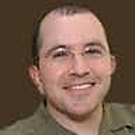
Paul Laurienti
Professor, Wake Forest School of Medicine and director of the Laboratory for Complex Brain Networks (LCBN). Paul leads a team pioneering the use of complexity theory and network science to understanding the brain as a complex, integrated network. They apply network science methods brain imaging studies that range from understanding normal aging to the adverse effects of pesticides in Latino migrant farmworkers. Paul is an avid and amazing grower of orchids!
Professor, Wake Forest School of Medicine and director of the Laboratory for Complex Brain Networks (LCBN). Paul leads a team pioneering the use of complexity theory and network science to understanding the brain as a complex, integrated network. They apply network science methods brain imaging studies that range from understanding normal aging to the adverse effects of pesticides in Latino migrant farmworkers. Paul is an avid and amazing grower of orchids!
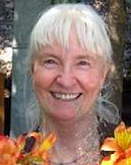
Sandy Lazarus
An independent contractor (senior specialist scientist) at the South African Medical Research Council/University of South Africa’s Violence, Injury and Peace Research Unit in Cape Town, Professor, University of the Western Cape, and Extraordinaire Professor, University of South Africa, Sandy’s professional experience and expertise is in community psychology (education and health sectors). An academic activist, researcher and teacher (professionally registered as a research psychologist), she has contributed to local, provincial, national and international contexts over four decades. This has included national policy development and practice in education (on the development of an inclusive education system and education support services in South Africa); national policy development and practice in health promotion (specifically in the development of health promoting schools); and research methodology, with a particular focus on the development of community engaged research through participatory action research approaches. Over the last ten years, she focused particularly on violence, violence prevention, and safety and peace promotion in South Africa. Sandy lives in the rural town of McGregor, Western Cape.
An independent contractor (senior specialist scientist) at the South African Medical Research Council/University of South Africa’s Violence, Injury and Peace Research Unit in Cape Town, Professor, University of the Western Cape, and Extraordinaire Professor, University of South Africa, Sandy’s professional experience and expertise is in community psychology (education and health sectors). An academic activist, researcher and teacher (professionally registered as a research psychologist), she has contributed to local, provincial, national and international contexts over four decades. This has included national policy development and practice in education (on the development of an inclusive education system and education support services in South Africa); national policy development and practice in health promotion (specifically in the development of health promoting schools); and research methodology, with a particular focus on the development of community engaged research through participatory action research approaches. Over the last ten years, she focused particularly on violence, violence prevention, and safety and peace promotion in South Africa. Sandy lives in the rural town of McGregor, Western Cape.
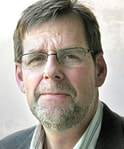
Jørn Lemvik
Immediate past Secretary General of Digni, Norway, continues as a Special Advisor until retirement. Digni is an umbrella organisation for 20 Norwegian mission societies and churches engaged in long-term development cooperation that manages a multi-year agreement with Norad , and actively works against corruption and systematically to build solid organizations and competent management at all levels. Jørn has a special interest in the leadership and the role of the civil society in development work, including a focus on the importance of religious actors. He has been a visiting fellow at World Faiths Development Dialogue, Washington D.C, and spent 13 years in Ethiopia and a year in Kenya, followed by many more years traveling around the world. Though he says “I am not an academic. I have no papers or reports for you. I am a storyteller,” he has intensively engaged as a thinker and practitioner on organization and leadership, communication, conflicts, and partnerships in Africa, Asia, and Latin America.
Immediate past Secretary General of Digni, Norway, continues as a Special Advisor until retirement. Digni is an umbrella organisation for 20 Norwegian mission societies and churches engaged in long-term development cooperation that manages a multi-year agreement with Norad , and actively works against corruption and systematically to build solid organizations and competent management at all levels. Jørn has a special interest in the leadership and the role of the civil society in development work, including a focus on the importance of religious actors. He has been a visiting fellow at World Faiths Development Dialogue, Washington D.C, and spent 13 years in Ethiopia and a year in Kenya, followed by many more years traveling around the world. Though he says “I am not an academic. I have no papers or reports for you. I am a storyteller,” he has intensively engaged as a thinker and practitioner on organization and leadership, communication, conflicts, and partnerships in Africa, Asia, and Latin America.
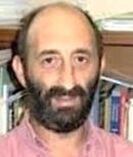
Leslie London
Professor in the School of of Public Health and Family Medecine, University of Cape Town (UCT), Leslie is a physician with a strong occupational, environmental and public health focus orientated toward civil society participation and agency in realizing the Right to Health. After a few years working for Trade Union-linked health services before moving to UCT, he 'shifted from being a quantitative epidemiologist to thinking about how to integrate human rights into Public Health practice.' Leslie, for whom social justice is fundamental and persistence a virtue, believes that 'we should constantly struggle to help create a better world- which is possible.' He lives this metaphorically by cycling, falling off bicycles, and getting back on again.
Professor in the School of of Public Health and Family Medecine, University of Cape Town (UCT), Leslie is a physician with a strong occupational, environmental and public health focus orientated toward civil society participation and agency in realizing the Right to Health. After a few years working for Trade Union-linked health services before moving to UCT, he 'shifted from being a quantitative epidemiologist to thinking about how to integrate human rights into Public Health practice.' Leslie, for whom social justice is fundamental and persistence a virtue, believes that 'we should constantly struggle to help create a better world- which is possible.' He lives this metaphorically by cycling, falling off bicycles, and getting back on again.
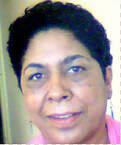
Anita Marshall
Anita, from South Africa, is a development practitioner, having trained as an Adult Educator and worked in many development settings from community level to managing both national and regional programmes. Children’s rights and development is a particular focus of her work and developing appropriate curriculum for diverse contexts a particular strength. Previous positions include: Regional Orphans and Vulnerable Children (OVC), Coordinator across six countries in Africa including Ivory Coast, Nigeria, Botswana, Kenya, Zambia and South Africa. National Coordinator, National Integrated plan for Children and Youth in S.A. -- a Cabinet-mandated response to the HIV epidemic across 9 provinces. National Education and Training Manager at both the Black Sash and Resources Aimed at the Prevention of Child Abuse and Neglect (RAPCAN), an extension research programme of the University of Cape Town. Trainer at a University of Cape Town, School of Public Health, an initiative for health committees as vehicles of change in addressing social determinants of health. She is currently Director of Training for Transition (www.trainingfortransition.com), a capacity development consultancy for vulnerable groups.
Anita, from South Africa, is a development practitioner, having trained as an Adult Educator and worked in many development settings from community level to managing both national and regional programmes. Children’s rights and development is a particular focus of her work and developing appropriate curriculum for diverse contexts a particular strength. Previous positions include: Regional Orphans and Vulnerable Children (OVC), Coordinator across six countries in Africa including Ivory Coast, Nigeria, Botswana, Kenya, Zambia and South Africa. National Coordinator, National Integrated plan for Children and Youth in S.A. -- a Cabinet-mandated response to the HIV epidemic across 9 provinces. National Education and Training Manager at both the Black Sash and Resources Aimed at the Prevention of Child Abuse and Neglect (RAPCAN), an extension research programme of the University of Cape Town. Trainer at a University of Cape Town, School of Public Health, an initiative for health committees as vehicles of change in addressing social determinants of health. She is currently Director of Training for Transition (www.trainingfortransition.com), a capacity development consultancy for vulnerable groups.
-
McCarroll, Andy
-
McGaughey, Doug
-
Milstein, Bobby
-
Moseley, Jeremy
-
Moya, Eva
<
>
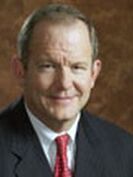
Andy McCarroll
Andy has a BA and JD from Vanderbilt University, and MA University of Chicago Divinity School). He is General Counsel, Southeastern Asset Management, Inc., offices in Memphis, London, Tokyo, Singapore, Sydney. Prior to that, he spent several years practicing corporate and securities law at a Nashville law firm. Currently Andy is passionately engaged in an innovative venture in Memphis, TN, that hopes to promote ecologically sustainable and just agricultural technologies and process.
Andy has a BA and JD from Vanderbilt University, and MA University of Chicago Divinity School). He is General Counsel, Southeastern Asset Management, Inc., offices in Memphis, London, Tokyo, Singapore, Sydney. Prior to that, he spent several years practicing corporate and securities law at a Nashville law firm. Currently Andy is passionately engaged in an innovative venture in Memphis, TN, that hopes to promote ecologically sustainable and just agricultural technologies and process.
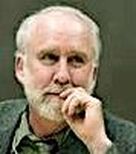
Douglas McGaughey
Emeritus Professor in Religious Studies, Willamette University, OR. He completed his doctorate under Paul Ricoeur at the Divinity School of the University of Chicago. He is the author of a trilogy of books in Philosophical, Systematic, and Practical Theology as well as the editor of a Festschrift in honor of Herman Waetjen at the San Francisco Theological Seminary in San Anselmo, CA. His translation of Otfried Höffe’s Can Virtue Make Us Happy? The Art of Living and Morality was published by Northwestern University Press in 2010. A Fulbright Senior Fellow during 1992-1993 in Tübingen, in 2006 he was among the prize winners of an essay contest sponsored by Das Forschungsinstitut für Philosophie Hannover, Germany on the question ‘Braucht Werterziehung Religion?’, published by the Wallstein Verlag in Göttingen in 2007. In 2010, he participated in a conference under Otfried Höffe on Kant’s Religion Within the Limits of Mere Reason, his paper subsequently being published in Immanuel Kant: Religion innerhalb der Grenzen der bloßen Vernunft (Berlin: Akadamie Verlag, 2010). He is a Corresponding Member of the Research Center for Political Philosophy (Korrespondierendes Mitglied der Forschungsstelle Politische Philosophie) at the Eberhard-Karls University in Tübingen. He is host of the website http://www.criticalidealism.org.
Emeritus Professor in Religious Studies, Willamette University, OR. He completed his doctorate under Paul Ricoeur at the Divinity School of the University of Chicago. He is the author of a trilogy of books in Philosophical, Systematic, and Practical Theology as well as the editor of a Festschrift in honor of Herman Waetjen at the San Francisco Theological Seminary in San Anselmo, CA. His translation of Otfried Höffe’s Can Virtue Make Us Happy? The Art of Living and Morality was published by Northwestern University Press in 2010. A Fulbright Senior Fellow during 1992-1993 in Tübingen, in 2006 he was among the prize winners of an essay contest sponsored by Das Forschungsinstitut für Philosophie Hannover, Germany on the question ‘Braucht Werterziehung Religion?’, published by the Wallstein Verlag in Göttingen in 2007. In 2010, he participated in a conference under Otfried Höffe on Kant’s Religion Within the Limits of Mere Reason, his paper subsequently being published in Immanuel Kant: Religion innerhalb der Grenzen der bloßen Vernunft (Berlin: Akadamie Verlag, 2010). He is a Corresponding Member of the Research Center for Political Philosophy (Korrespondierendes Mitglied der Forschungsstelle Politische Philosophie) at the Eberhard-Karls University in Tübingen. He is host of the website http://www.criticalidealism.org.
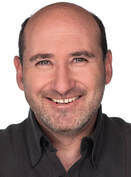
Bobby Milstein
PhD, MPH, is Director of System Strategy for ReThink Health and the Rippel Foundation, as well as a Visiting Scientist at the MIT Sloan School of Management. With an educational background that combines cultural anthropology, behavioral science, and systems science, he concentrates on efforts to spark large-scale institutional change. He works with innovators who see themselves as system stewards, often equipping them with practical mindsets, models, and measures to understand their own scenarios for enhancing well-being and equity. He is a member of the National Academies Roundtable on Population Health Improvement, a co-founder of the Well Being in the Nation Network, and a trusted design consultant for new endeavors that strive to expand the dynamic and democratic dimensions of system stewardship. Previously, Bobby spent 20 years planning and evaluating system-oriented initiatives at the Centers for Disease Control and Prevention, where he was the principal architect of CDC’s framework for program evaluation. He received CDC’s Honor Award for Excellence in Innovation, as well as Article of the Year awards for papers published in Health Affairs and Health Promotion Practice. Outside of work Bobby practices photography, plays tennis, and cooks. He is married to Joanna Davidson, an anthropologist who studies political ecology and social transformation primarily in West Africa. Their daughter, Jasper, is a fiery redhead who is quick to step onto any stage; and their son, Zoly, is a clever jokester with a shockingly long memory.
PhD, MPH, is Director of System Strategy for ReThink Health and the Rippel Foundation, as well as a Visiting Scientist at the MIT Sloan School of Management. With an educational background that combines cultural anthropology, behavioral science, and systems science, he concentrates on efforts to spark large-scale institutional change. He works with innovators who see themselves as system stewards, often equipping them with practical mindsets, models, and measures to understand their own scenarios for enhancing well-being and equity. He is a member of the National Academies Roundtable on Population Health Improvement, a co-founder of the Well Being in the Nation Network, and a trusted design consultant for new endeavors that strive to expand the dynamic and democratic dimensions of system stewardship. Previously, Bobby spent 20 years planning and evaluating system-oriented initiatives at the Centers for Disease Control and Prevention, where he was the principal architect of CDC’s framework for program evaluation. He received CDC’s Honor Award for Excellence in Innovation, as well as Article of the Year awards for papers published in Health Affairs and Health Promotion Practice. Outside of work Bobby practices photography, plays tennis, and cooks. He is married to Joanna Davidson, an anthropologist who studies political ecology and social transformation primarily in West Africa. Their daughter, Jasper, is a fiery redhead who is quick to step onto any stage; and their son, Zoly, is a clever jokester with a shockingly long memory.
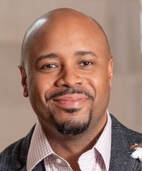
Jeremy Moseley
Jeremy (B.S. in Public Health Policy & Administration, UNC-Chapel Hill; Master's in Public Health Analysis & Management, East Carolina University) is Program Administrator for Community Engagement, Wake Forest Baptist Health's FaithHealth Division. He has worked to improve community-based care transitions, increase community engagement and access to services, and link community resources to healthcare systems. He has designed regional projects for the CDC to address heart disease and stroke prevention and systems of care, and for the Centers for Medicaid and Medicare Services to address care transitions and hospital readmissions, and health system programs to improve transitions of care and the health of individuals residing in socially complex communities. He staffed a state heart disease and stroke prevention legislative committee, and served on workgroups for Stakeholder Health to transform health through community partner-ship. Exposed to the complexities of a small town where racial divides, economic distress, and high levels of crime were profound and persistent, Jeremy is a product of a father who gave his life to improving the lives of those who face challenges of mental health, substance abuse, and deve-lopmental disabilities, and of a mother who educated three generations of elementary students in a small rural town in eastern North Carolina.
Jeremy (B.S. in Public Health Policy & Administration, UNC-Chapel Hill; Master's in Public Health Analysis & Management, East Carolina University) is Program Administrator for Community Engagement, Wake Forest Baptist Health's FaithHealth Division. He has worked to improve community-based care transitions, increase community engagement and access to services, and link community resources to healthcare systems. He has designed regional projects for the CDC to address heart disease and stroke prevention and systems of care, and for the Centers for Medicaid and Medicare Services to address care transitions and hospital readmissions, and health system programs to improve transitions of care and the health of individuals residing in socially complex communities. He staffed a state heart disease and stroke prevention legislative committee, and served on workgroups for Stakeholder Health to transform health through community partner-ship. Exposed to the complexities of a small town where racial divides, economic distress, and high levels of crime were profound and persistent, Jeremy is a product of a father who gave his life to improving the lives of those who face challenges of mental health, substance abuse, and deve-lopmental disabilities, and of a mother who educated three generations of elementary students in a small rural town in eastern North Carolina.
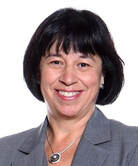
Eva Moya
Eva (MSc,PhD) is Associate Professor, Dept of Social Work, College ofHealth Sciences, University of Texas at El Paso. A native of the U.S.-Mexico border, trained in Interdisciplinary Health Sciences and Social Work, Eva is a specialist in border health, publishing extensively on health disparities and infectious disease, homelessness, intimate partner violence, HPV, TB and HIV/AIDS, Photovoice method, and community health workers. She has been Director for the U.S. Section of the U.S.-Mexico Border Health Commission, the Border Vision Fronteriza Outreach Project (University of Arizona), Centro San Vicente Social Services, and women’s health and youth sexuality education endeavors in Mexico, and Advocacy, Com-munication and Social Mobilization Coordinator for SOLUCION TB Expansion with Project Concern International, also directing the PIMSA Transborder Tuberculosis and Stigma Project, and Intimate Partner Violence and Voices and Images of Domestic Violence research projects. A Kellogg National Leadership Fellow, Eva conducted studies in service-learning and homelessness throughout the world. She serves in various social justice boards and, in 2019, received the UTEP Community Engaged Scholar award, also being inducted for civic leadership to theWomen’s Hall of Fame in El Paso. She finds immense joy in spending quality time with family, friends, and embarking in community-engaged initiatives.
Eva (MSc,PhD) is Associate Professor, Dept of Social Work, College ofHealth Sciences, University of Texas at El Paso. A native of the U.S.-Mexico border, trained in Interdisciplinary Health Sciences and Social Work, Eva is a specialist in border health, publishing extensively on health disparities and infectious disease, homelessness, intimate partner violence, HPV, TB and HIV/AIDS, Photovoice method, and community health workers. She has been Director for the U.S. Section of the U.S.-Mexico Border Health Commission, the Border Vision Fronteriza Outreach Project (University of Arizona), Centro San Vicente Social Services, and women’s health and youth sexuality education endeavors in Mexico, and Advocacy, Com-munication and Social Mobilization Coordinator for SOLUCION TB Expansion with Project Concern International, also directing the PIMSA Transborder Tuberculosis and Stigma Project, and Intimate Partner Violence and Voices and Images of Domestic Violence research projects. A Kellogg National Leadership Fellow, Eva conducted studies in service-learning and homelessness throughout the world. She serves in various social justice boards and, in 2019, received the UTEP Community Engaged Scholar award, also being inducted for civic leadership to theWomen’s Hall of Fame in El Paso. She finds immense joy in spending quality time with family, friends, and embarking in community-engaged initiatives.
-
Mpumlwana, Malusi
-
Ndinga, Shingai
-
Norris, Tyler
-
Nicks, Bret
-
Olivier, Jill
<
>
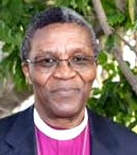
Malusi Mpumiwana
Retired bishop of the Ethiopian Episcopal Church, is General Secretary of the South African Council of Churches (SACC), spearheading common Christian action for moral witness in South Africa on issues of social and economic justice, national reconciliation, the integrity of creation, eradication of poverty, and the empowerment of all those who are spiritually, socially and economically marginalized. He spearheads the SACC campaign of The South Africa We Pray For, with its five pillars of Healing & Reconciliation, Family Fabric, Poverty & Inequality, Economic Transformation, and Anchoring Democracy – all in the promise of a just, reconciled, peaceful, equitable and sustainable society free of racial, tribal, xenophobic and gender prejudices, of corruption and deprivation, with enough food and shelter for all, and for each child to grow to its God-given potential. Trained at the Federal Theological Seminary, University of Cape Town, and the University of Notre Dame, his is the contextual theology approach that reflects on momentous challenges to distill those elements that cry out for intervention, failing which history would judge adversely - a Kairos Theology.
Retired bishop of the Ethiopian Episcopal Church, is General Secretary of the South African Council of Churches (SACC), spearheading common Christian action for moral witness in South Africa on issues of social and economic justice, national reconciliation, the integrity of creation, eradication of poverty, and the empowerment of all those who are spiritually, socially and economically marginalized. He spearheads the SACC campaign of The South Africa We Pray For, with its five pillars of Healing & Reconciliation, Family Fabric, Poverty & Inequality, Economic Transformation, and Anchoring Democracy – all in the promise of a just, reconciled, peaceful, equitable and sustainable society free of racial, tribal, xenophobic and gender prejudices, of corruption and deprivation, with enough food and shelter for all, and for each child to grow to its God-given potential. Trained at the Federal Theological Seminary, University of Cape Town, and the University of Notre Dame, his is the contextual theology approach that reflects on momentous challenges to distill those elements that cry out for intervention, failing which history would judge adversely - a Kairos Theology.

Shingai Ndinga
Shingai is a Congolese and Zimbabwean, passionate about ethnochoreology, dance, technology and politics within Africa. He has a Bachelor of Arts in Dance and French Language & Literature from the University of Cape Town and is currently doing his Graduate studies. Being a former refugee from the Congo war of 1997 in Brazzaville, he has had a deep leaning to understand the structures that underpin the world we live in, and the reasons why we do what we actually do. He is excited about LCLI because the framework shifts many of these underpinnings from looking at death, to looking at life itself and what actually brings life to one's world or the world as we know it in general. He is married to a wonderful lady named Masana and together have a precious daughter called 'Elikia' (which means 'Hope' in the Congolese language Lingala).
Shingai is a Congolese and Zimbabwean, passionate about ethnochoreology, dance, technology and politics within Africa. He has a Bachelor of Arts in Dance and French Language & Literature from the University of Cape Town and is currently doing his Graduate studies. Being a former refugee from the Congo war of 1997 in Brazzaville, he has had a deep leaning to understand the structures that underpin the world we live in, and the reasons why we do what we actually do. He is excited about LCLI because the framework shifts many of these underpinnings from looking at death, to looking at life itself and what actually brings life to one's world or the world as we know it in general. He is married to a wonderful lady named Masana and together have a precious daughter called 'Elikia' (which means 'Hope' in the Congolese language Lingala).
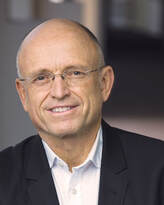
Norris, Tyler
With an M.Div, Tyler is a social entrepreneur and trusted advisor to philanthropies and partnerships working to improve the well-being of people and place. For four decades he has shaped health and development initiatives in communities across the U.S. and around the world; and built over a dozen business and social ventures. Tyler currently serves as Board Chair of Naropa University; co-Chair of the CEO Alliance for Mental Health; and as a board member for Mindful Philanthropy, the National Academies of Sciences’ Child Well Being Forum, Build Healthy Places Network, the Fireside Project, and the Global Flourishing Study. He was recently named as Visiting Scholar of the Federal Reserve Bank of New York. Over the decades Tyler helped facilitate the opening of the Abraham Path through the heart of the Middle East; and led the Kuhiston Foundation to help establish the national park system and micro-finance in Tajikistan. He lives in Ketchum Idaho and Oakland, California, USA.
With an M.Div, Tyler is a social entrepreneur and trusted advisor to philanthropies and partnerships working to improve the well-being of people and place. For four decades he has shaped health and development initiatives in communities across the U.S. and around the world; and built over a dozen business and social ventures. Tyler currently serves as Board Chair of Naropa University; co-Chair of the CEO Alliance for Mental Health; and as a board member for Mindful Philanthropy, the National Academies of Sciences’ Child Well Being Forum, Build Healthy Places Network, the Fireside Project, and the Global Flourishing Study. He was recently named as Visiting Scholar of the Federal Reserve Bank of New York. Over the decades Tyler helped facilitate the opening of the Abraham Path through the heart of the Middle East; and led the Kuhiston Foundation to help establish the national park system and micro-finance in Tajikistan. He lives in Ketchum Idaho and Oakland, California, USA.
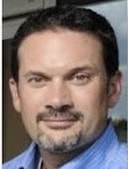
Bret Nicks
Associate Professor, Emergency Medicine, Chief Medical Officer Wake Forest Baptist Health Davie Medical Center, Director Global Emergency Medicine Fellowship, Immediate Past President North Carolina College of Emergency Physicians, Affiliate Faculty Office of Global Health.His interests include Emergency Medecine development, global health integration in resource austere settings, and Community/Health System partnerships. He has key relationships with colleagues in Tanzania and Nicaragua, and has been a Lead educator and care provider in more than15 countries worldwide with numerous NGO and governmental organizations. Outdoor and wilderness activities are a particular passion of Bret's, as are ethnic foods, and family life. Coming from a disadvantaged background, Bret is motivated by a desire to serve others regardless of situation or circumstance.
Associate Professor, Emergency Medicine, Chief Medical Officer Wake Forest Baptist Health Davie Medical Center, Director Global Emergency Medicine Fellowship, Immediate Past President North Carolina College of Emergency Physicians, Affiliate Faculty Office of Global Health.His interests include Emergency Medecine development, global health integration in resource austere settings, and Community/Health System partnerships. He has key relationships with colleagues in Tanzania and Nicaragua, and has been a Lead educator and care provider in more than15 countries worldwide with numerous NGO and governmental organizations. Outdoor and wilderness activities are a particular passion of Bret's, as are ethnic foods, and family life. Coming from a disadvantaged background, Bret is motivated by a desire to serve others regardless of situation or circumstance.
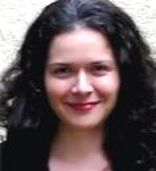
Jill Olivier
With a PhD from the University of Cape Town, Jill isAssociate Professor and Research Director of the International Health Assets Programme, School of Public Health & Family Medicine, University of Cape Town, does research and teaching in/on multiple low-and-middle income settings across Africa, Asia-Pacific and the LAC region. She leads a large post-graduate teaching program on health systems research and the sociology of health and illness. She is the PI of several completed and current multi-country studies, such as a current four-year grant on health system ‘responsive-ness’. She works as a social scientist within the field of health policy and systems research, has a particular interest in areas of ‘intersection’ (integrating non-state providers, community, intersectorality and interdisciplinarity); as well as communication; implementation; history; hermeneutics; and culture.
With a PhD from the University of Cape Town, Jill isAssociate Professor and Research Director of the International Health Assets Programme, School of Public Health & Family Medicine, University of Cape Town, does research and teaching in/on multiple low-and-middle income settings across Africa, Asia-Pacific and the LAC region. She leads a large post-graduate teaching program on health systems research and the sociology of health and illness. She is the PI of several completed and current multi-country studies, such as a current four-year grant on health system ‘responsive-ness’. She works as a social scientist within the field of health policy and systems research, has a particular interest in areas of ‘intersection’ (integrating non-state providers, community, intersectorality and interdisciplinarity); as well as communication; implementation; history; hermeneutics; and culture.
-
Parajón, Laura
-
Pargament, Ken
-
Peachey, Kirsten
-
Petersen, Tom
-
Pray, Larry
<
>
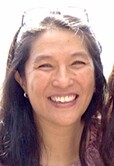
Laura Chanchien Parajón
MD, MPH, is a family physician, serving in Nicaragua as a American Baptist International Ministries missionary alongside her husband David, an internist since 2001, with him founding the Nicaragua-based non-profit organization, AMOS Health and Hope (amoshealth.org), which is dedicated to using community-based and empowering approaches to reduce health inequities. Trained in family medicine and public health, Laura applies Community-based participatory research (CBPR) frameworks in global health to develop future health professionals and community health workers (CHWs) to provide basic medical care, disease prevention and health promotion to their communities as well as organize to address social determinants of health and advocate for social and policy change.
MD, MPH, is a family physician, serving in Nicaragua as a American Baptist International Ministries missionary alongside her husband David, an internist since 2001, with him founding the Nicaragua-based non-profit organization, AMOS Health and Hope (amoshealth.org), which is dedicated to using community-based and empowering approaches to reduce health inequities. Trained in family medicine and public health, Laura applies Community-based participatory research (CBPR) frameworks in global health to develop future health professionals and community health workers (CHWs) to provide basic medical care, disease prevention and health promotion to their communities as well as organize to address social determinants of health and advocate for social and policy change.
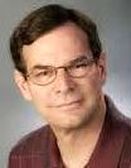
Kenneth I Pargament
Professor Emeritus, Department of Psychology, Bowling Green State University, and Adjunct Professor, Menninger Department of Psychiatry and Behavioral Sciences, Baylor College of Medicine. Ken specialize in clinical/community psychology and the psychology of religion and spirituality. Mentoring over 40 Ph. D. graduate students, he has been a consultant with NIH, WHO, Templeton Foundation, and Fetzer Institute. Editor-in-chief of the APA Handbook of Psychology, Religion, and Spirituality, among his many publications is Spiritually Integrated Psychotherapy: Understanding and Addressing the Sacred. Ken went into psychology because he was ‘interested in the big questions: Why are we here? How should we live our lives? How can we make the world a better place?’
Professor Emeritus, Department of Psychology, Bowling Green State University, and Adjunct Professor, Menninger Department of Psychiatry and Behavioral Sciences, Baylor College of Medicine. Ken specialize in clinical/community psychology and the psychology of religion and spirituality. Mentoring over 40 Ph. D. graduate students, he has been a consultant with NIH, WHO, Templeton Foundation, and Fetzer Institute. Editor-in-chief of the APA Handbook of Psychology, Religion, and Spirituality, among his many publications is Spiritually Integrated Psychotherapy: Understanding and Addressing the Sacred. Ken went into psychology because he was ‘interested in the big questions: Why are we here? How should we live our lives? How can we make the world a better place?’
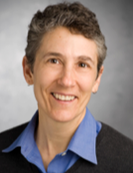
Kirsten Peachey
Kirsten, Rev., MSW, MDiv, DMin, Director of Congregational Health Partnerships for Advocate Health Care in Chicago, supports faith communities in their role as promoters of health and healing through training, consultation, resource linking and partnership development. Instrumental in founding The Center for Faith and Community HeRealth Transformation in metropolitan Chicago, which focuses on health inequities and a vision for the role that people of faith can play. Her thinking has been shaped by experiences overseas as a child in the Middle East, as an adult in South Africa, and in diverse urban settings in the USA, from which she brings an appreciation for the ways in which ordinary people create resilient lives in the midst of struggle for justice and peace. Ordained in the United Church of Christ, Kirsten holds a Master of Social Work from the University of Chicago, and a Master of Divinity and Doctor of Ministry in faith and health from the Chicago Theological Seminary. She has worked as a social worker, hospital chaplain, pastoral counselor and bus driver! She lives in Oak Park, IL with her partner and their son and loves traveling, camping and reading in their backyard tree house when the weather is nice.
Kirsten, Rev., MSW, MDiv, DMin, Director of Congregational Health Partnerships for Advocate Health Care in Chicago, supports faith communities in their role as promoters of health and healing through training, consultation, resource linking and partnership development. Instrumental in founding The Center for Faith and Community HeRealth Transformation in metropolitan Chicago, which focuses on health inequities and a vision for the role that people of faith can play. Her thinking has been shaped by experiences overseas as a child in the Middle East, as an adult in South Africa, and in diverse urban settings in the USA, from which she brings an appreciation for the ways in which ordinary people create resilient lives in the midst of struggle for justice and peace. Ordained in the United Church of Christ, Kirsten holds a Master of Social Work from the University of Chicago, and a Master of Divinity and Doctor of Ministry in faith and health from the Chicago Theological Seminary. She has worked as a social worker, hospital chaplain, pastoral counselor and bus driver! She lives in Oak Park, IL with her partner and their son and loves traveling, camping and reading in their backyard tree house when the weather is nice.
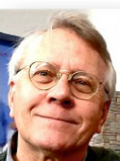
Tom Peterson
Tom is principal at Thunderhead Works, which is focused on communications for world change. He teaches marketing for non-profits and social change at the Clinton School of Public Service. Peterson directs the communications for Stakeholder Health. Previously, he led Heifer International's marketing efforts for most of two decades, growing the annual revenue from $3 million in 1992 to $90 million in 2008—raising about $900 million and making Heifer one of the fastest growing non-profits in the U.S. Many online, direct mail, PR, and branding programs he led won national awards. In the 1980s he edited Seeds, a magazine about U.S and World Hunger. Peterson holds a BA in philosophy from the Univ. of Texas and an MDiv from Austin Presbyterian Theological Seminary.
Tom is principal at Thunderhead Works, which is focused on communications for world change. He teaches marketing for non-profits and social change at the Clinton School of Public Service. Peterson directs the communications for Stakeholder Health. Previously, he led Heifer International's marketing efforts for most of two decades, growing the annual revenue from $3 million in 1992 to $90 million in 2008—raising about $900 million and making Heifer one of the fastest growing non-profits in the U.S. Many online, direct mail, PR, and branding programs he led won national awards. In the 1980s he edited Seeds, a magazine about U.S and World Hunger. Peterson holds a BA in philosophy from the Univ. of Texas and an MDiv from Austin Presbyterian Theological Seminary.
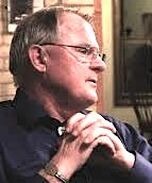
Larry Pray
Larry is co-author with Gary Gunderson of The Leading Causes of Life, the book that launched the ideas that lie at the core of this Initiative. More recently he authored a book richly mixed with his own reflections and paintings on Thresholds: Connecting Body and Soul after Brain Injury (Ruder Finn Press). Before that he published Journey of a Diabetic with Simon and Schuster. His interests lie in creativity and healing, chronic disease, and … finding life in unlikely places! Larry, par excellence a pastor, writer, poet and painter, graduated from Union Theological Seminary (MDiv), having received an MA at Johns Hopkins University, and a BA at Beloit College. Larry’s deeply insightful and powerfully evocative poems and paintings following a series of strokes, and created for as many Fellows as he was able, are a central, vital element of our self-understanding.
Larry is co-author with Gary Gunderson of The Leading Causes of Life, the book that launched the ideas that lie at the core of this Initiative. More recently he authored a book richly mixed with his own reflections and paintings on Thresholds: Connecting Body and Soul after Brain Injury (Ruder Finn Press). Before that he published Journey of a Diabetic with Simon and Schuster. His interests lie in creativity and healing, chronic disease, and … finding life in unlikely places! Larry, par excellence a pastor, writer, poet and painter, graduated from Union Theological Seminary (MDiv), having received an MA at Johns Hopkins University, and a BA at Beloit College. Larry’s deeply insightful and powerfully evocative poems and paintings following a series of strokes, and created for as many Fellows as he was able, are a central, vital element of our self-understanding.
-
Pswarayi, Gertrude
-
Reeler, Doug
-
Rivers, Francis
-
Royesh, Aziz
-
Saha, Somava
<
>
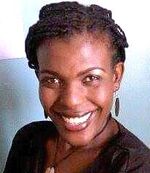
Gertrude Pswarayi
Gertrude, from Zimbabwe, is a seasoned development professional proficient in communication, new business development and programmes coordination. She has worked in Southern Africa on diverse social issues including agriculture, climate change, sexual and reproductive health, information and communication technologies for social change and women empowerment. She is the winner of the 2011 Kurt Schork International Journalism and founder of a non-profit making organisation working to advance women and communication rights in Zimbabwe. Gertrude holds a MSc. degree in Development Studies and a BSc degree in Journalism and Media Studies. Currently, Gertrude is studying Earth Jurisprudence, an emerging field of law that encompasses both environmental and legal practice. She lives in Bulawayo, southern Zimbabwe.
Gertrude, from Zimbabwe, is a seasoned development professional proficient in communication, new business development and programmes coordination. She has worked in Southern Africa on diverse social issues including agriculture, climate change, sexual and reproductive health, information and communication technologies for social change and women empowerment. She is the winner of the 2011 Kurt Schork International Journalism and founder of a non-profit making organisation working to advance women and communication rights in Zimbabwe. Gertrude holds a MSc. degree in Development Studies and a BSc degree in Journalism and Media Studies. Currently, Gertrude is studying Earth Jurisprudence, an emerging field of law that encompasses both environmental and legal practice. She lives in Bulawayo, southern Zimbabwe.
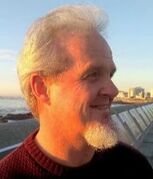
Doug Reeler
Cultural anthropologist, historian and social facilitator for the Community Development Resource Association (CDRA) in Cape Town. His work focuses on designing and facilitating social change processes with a wide range of actors towards de-veloping more effective social change practices and co-creative, collaborative organisational forms. His particular interest is the creative force of civil society in dissolving the domination and collusion of economic and political societies, in search of more freedom, inclusion and sufficiency. He has done work with NGOs and social movements across Africa, Asia and Eur-ope. He has co-pioneered the Barefoot Guides to Social Change over the past 10 years, supporting the publishing of the ex-perienced, but missed, voices of grassroots leadership and practitioners to contribute to global social change practice (from the experience of those who do not usually write to support the change practices of those who do not usually read).
Cultural anthropologist, historian and social facilitator for the Community Development Resource Association (CDRA) in Cape Town. His work focuses on designing and facilitating social change processes with a wide range of actors towards de-veloping more effective social change practices and co-creative, collaborative organisational forms. His particular interest is the creative force of civil society in dissolving the domination and collusion of economic and political societies, in search of more freedom, inclusion and sufficiency. He has done work with NGOs and social movements across Africa, Asia and Eur-ope. He has co-pioneered the Barefoot Guides to Social Change over the past 10 years, supporting the publishing of the ex-perienced, but missed, voices of grassroots leadership and practitioners to contribute to global social change practice (from the experience of those who do not usually write to support the change practices of those who do not usually read).
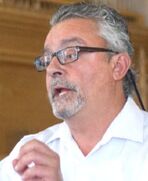
Francis Rivers Meza
Francis (BS, Duke; MDiv, McCormick), an ordained Minister in the Presbyterian Church (USA), is Chaplain Supervisor in the Department of Chaplaincy and Clinical Ministries at Wake Forest Baptist Health. He also serves as Moderator of the Steering Committee for Misión Presbiteriana El Buen Pastor, and as liaison on the staff of FaithHealth NC, with specific responsibilities for coordinating work with the Hispanic/Latinx community. Most recently, he collaborated with the Medical Center Bioethics Committee to develop a community-based educational program on advance care planning for the Hispanic/Latinx community, and he also collaborates with faculty of the Bowman Gray School of Medicine in developing a presentation for third year medical students preparing to serve rotations in outpatient clinics where a large number of Latinx Pediatrics patients and their families receive medical care. Previously Coordinator of the CPE Program at Parkland Health & Hospital System in Dallas, TX, Francis has also been a Member, Editorial Committee, Journal of Pastoral Care & Counseling, and Member, National Certification Commission, Association for Clinical Pastoral Education, Inc., and spent several years as a colleague in ministry with the Waldensian Church in Italy, Argentina, and Uruguay.
Francis (BS, Duke; MDiv, McCormick), an ordained Minister in the Presbyterian Church (USA), is Chaplain Supervisor in the Department of Chaplaincy and Clinical Ministries at Wake Forest Baptist Health. He also serves as Moderator of the Steering Committee for Misión Presbiteriana El Buen Pastor, and as liaison on the staff of FaithHealth NC, with specific responsibilities for coordinating work with the Hispanic/Latinx community. Most recently, he collaborated with the Medical Center Bioethics Committee to develop a community-based educational program on advance care planning for the Hispanic/Latinx community, and he also collaborates with faculty of the Bowman Gray School of Medicine in developing a presentation for third year medical students preparing to serve rotations in outpatient clinics where a large number of Latinx Pediatrics patients and their families receive medical care. Previously Coordinator of the CPE Program at Parkland Health & Hospital System in Dallas, TX, Francis has also been a Member, Editorial Committee, Journal of Pastoral Care & Counseling, and Member, National Certification Commission, Association for Clinical Pastoral Education, Inc., and spent several years as a colleague in ministry with the Waldensian Church in Italy, Argentina, and Uruguay.
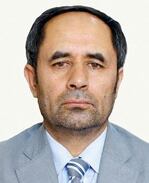
Aziz Royesh
Aziz, a leading advocate for equal access to primary and secondary education in Afghanistan, co-founded a school for Afghan refugees in Pakistan in 1994. With a focus on critical thinking and human rights, the school flourished and eventually moved to Afghanistan in 2002, where it now teaches more than 3500 Afghan students, about half of whom are girls. Aziz has written textbooks on humanism, human rights, democracy, social studies, and Quranic interpretation and is a frequent speaker on the concept of a tolerant community. Marefat High School has become a highly respected and well-known model for a new approach to community building in Afghanistan. Aziz and his colleagues established the Marefat Civil Capacity Building Organization (MCCBO) which is working to strengthen and expand democracy and civil norms of life. Marefat is accredited by the Afghanistan Ministry of Education, Ministry of Economics and Ministry of Finance as a tax-exempt non-profit NGO. It was recognized as the “Best Private School of 2014 and 2016” by the Ministry of Education. As a 2011-2012 Reagan-Fascell Democracy Fellow at the National Endowment for Democracy (NED), Aziz worked on his memoirs - featuring three decades of change and developments in Afghanistan after the Communist Coup in 1979 in a 550-page, best-selling book titled “Let Me Breathe.” In 2014, Aziz participated in the Global Teacher Prize contest through UK-based Varkey Foundation and acquired the position of Top 10. He was accredited as the "Afghanistan Hero of Education" in EU calendar of 2016 and won the membership of the International Association for College Admission Counseling in 2017. He is also a member of Empowerment Institute as an Imagine Leader.
Aziz, a leading advocate for equal access to primary and secondary education in Afghanistan, co-founded a school for Afghan refugees in Pakistan in 1994. With a focus on critical thinking and human rights, the school flourished and eventually moved to Afghanistan in 2002, where it now teaches more than 3500 Afghan students, about half of whom are girls. Aziz has written textbooks on humanism, human rights, democracy, social studies, and Quranic interpretation and is a frequent speaker on the concept of a tolerant community. Marefat High School has become a highly respected and well-known model for a new approach to community building in Afghanistan. Aziz and his colleagues established the Marefat Civil Capacity Building Organization (MCCBO) which is working to strengthen and expand democracy and civil norms of life. Marefat is accredited by the Afghanistan Ministry of Education, Ministry of Economics and Ministry of Finance as a tax-exempt non-profit NGO. It was recognized as the “Best Private School of 2014 and 2016” by the Ministry of Education. As a 2011-2012 Reagan-Fascell Democracy Fellow at the National Endowment for Democracy (NED), Aziz worked on his memoirs - featuring three decades of change and developments in Afghanistan after the Communist Coup in 1979 in a 550-page, best-selling book titled “Let Me Breathe.” In 2014, Aziz participated in the Global Teacher Prize contest through UK-based Varkey Foundation and acquired the position of Top 10. He was accredited as the "Afghanistan Hero of Education" in EU calendar of 2016 and won the membership of the International Association for College Admission Counseling in 2017. He is also a member of Empowerment Institute as an Imagine Leader.
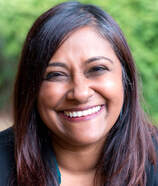
Somava Saha
Dr. MD MS (aka Soma Stout) is Executive Lead of the Wellbeing In the Nation (WIN) Network and Founder and Executive Lead of Well-being and Equity (WE) in the World, a collaboration of change agents working globally. For the last five years, she has served as Founder and Executive Lead of the 100 Million Healthier Lives initiative, a global network reaching more than 500 million people to address boundary-spanning approaches to creating health, well-being and equity, and continues to serve as a major implementation lead in that network. Deeply committed to improving the health and wellbeing of underserved people and communities, she was previously Vice President, Institute for Healthcare Improvement, a primary care doctor for over 15 years, in global health for over 20 years, Vice President for Patient Centered Medical Home Development at Cambridge Health Alliance, and leader of a nationally awarded whole system transformation in the Triple Aim of better health, better experience and lower cost. In 2012, she was awarded the Robert Wood Johnson Foundation Young Leader Award for her contributions to improving the health of the nation. With her daughter, Shohini, she also founded Raising Peacemakers, a grassroots, parent-child program that helps children (and their families!) develop the attitudes and skills to make a meaningful difference in the world.
Dr. MD MS (aka Soma Stout) is Executive Lead of the Wellbeing In the Nation (WIN) Network and Founder and Executive Lead of Well-being and Equity (WE) in the World, a collaboration of change agents working globally. For the last five years, she has served as Founder and Executive Lead of the 100 Million Healthier Lives initiative, a global network reaching more than 500 million people to address boundary-spanning approaches to creating health, well-being and equity, and continues to serve as a major implementation lead in that network. Deeply committed to improving the health and wellbeing of underserved people and communities, she was previously Vice President, Institute for Healthcare Improvement, a primary care doctor for over 15 years, in global health for over 20 years, Vice President for Patient Centered Medical Home Development at Cambridge Health Alliance, and leader of a nationally awarded whole system transformation in the Triple Aim of better health, better experience and lower cost. In 2012, she was awarded the Robert Wood Johnson Foundation Young Leader Award for her contributions to improving the health of the nation. With her daughter, Shohini, she also founded Raising Peacemakers, a grassroots, parent-child program that helps children (and their families!) develop the attitudes and skills to make a meaningful difference in the world.
-
Scoggin, Steve
-
Seedat, Mohamed
-
Singhal, Arvind
-
Sinha, Rachel
-
Smith, Fred
-
Snyman, Deon
<
>
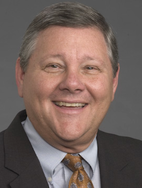
Steve Scoggin
Steve is Interim Chair & Assistant Professor, Dept of Psychiatry and Behavioral Medicine, Medical Center & Associate Vice-President of Behavioral Health, Wake Forest Baptist Healthcare. He is an ordained minister. As past President of CareNet, a state-wide network of 35 plus outpatient behavioral health clinics—as leaders in spiritually integrated psychotherapy, counseling, education and research, the largest network of its kind in the world—Steve was deeply involved at the national, state, local and non-profit levels in advocacy, education, and service provision for children, adults and families who live with physical, emotional, social and spiritual challenges. Living at the intersection of mind, body, spirit and community, he seeks to root new models of spiritually integrated behavioral health into medical and non-profit contexts, for the sake of all.
Steve is Interim Chair & Assistant Professor, Dept of Psychiatry and Behavioral Medicine, Medical Center & Associate Vice-President of Behavioral Health, Wake Forest Baptist Healthcare. He is an ordained minister. As past President of CareNet, a state-wide network of 35 plus outpatient behavioral health clinics—as leaders in spiritually integrated psychotherapy, counseling, education and research, the largest network of its kind in the world—Steve was deeply involved at the national, state, local and non-profit levels in advocacy, education, and service provision for children, adults and families who live with physical, emotional, social and spiritual challenges. Living at the intersection of mind, body, spirit and community, he seeks to root new models of spiritually integrated behavioral health into medical and non-profit contexts, for the sake of all.
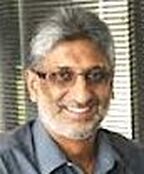
Mohamed Seedat
Head of the Institute for Social and Health Sciences, University of South Africa, and the SA Medical Research Council-UNISA Violence, Injury and Peace Research Unit, Mohamed has served on several editorial boards, international conference organising committees, acted as an external examiner/reviewer on masters and doctoral level research reports/thesis, books, funding proposals and journal manuscripts and provided advisory services to agencies in the injury prevention, community psychology and development fields. He has published in the areas of community psychology, racism, violence and community development, and acted as an advisor to several authorship development initiatives and research Unit applications for the Medical Research Council and National Research Foundation.
Head of the Institute for Social and Health Sciences, University of South Africa, and the SA Medical Research Council-UNISA Violence, Injury and Peace Research Unit, Mohamed has served on several editorial boards, international conference organising committees, acted as an external examiner/reviewer on masters and doctoral level research reports/thesis, books, funding proposals and journal manuscripts and provided advisory services to agencies in the injury prevention, community psychology and development fields. He has published in the areas of community psychology, racism, violence and community development, and acted as an advisor to several authorship development initiatives and research Unit applications for the Medical Research Council and National Research Foundation.
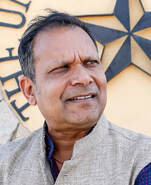
Arvind Singhal
Arvind (PhD) is Samuel Shirley and Edna Holt Marston Endowed Professor of Communication and Director of the Social Justice Initiative at The University of Texas at El Paso, the William J. Clinton Distinguished Fellow at the Clinton School of Public Service, Little Rock, Arkansas, and Distinguished Professor in the Faculty of Business Administration, Inland University of Applied Sciences, Norway. He teaches and conducts research on the diffusion of innovations, the positive deviance approach, organizing for social change, the entertainment-education strategy, and liberating interactional structures, covering fields as diverse as public health, education, human rights, poverty alleviation, sustainable development, civic participation, democracy and governance, and corporate citizenship. Co-author or editor of 14 books, three of which have won awards, he has also authored some 200 peer-reviewed essays, mainly in communication journals, several of them also awarded. Multiply honoured in other ways too, in the USA, India, Japan, Slovakia, Germany, Arvind has served as an advisor to the World Bank, UN-FAO, UNICEF, UNDP, UNAIDS, UNFPA, U.S. Department of State; U.S. A.I.D., Family Health International, PATH, Save the Children, the BBC World Service Trust, International Rice Research Institute, Voice for Humanity, and several private corporations, and has visited and lectured in some 90 countries of Asia, Africa, Latin America, Australia, Europe, and North America.
Arvind (PhD) is Samuel Shirley and Edna Holt Marston Endowed Professor of Communication and Director of the Social Justice Initiative at The University of Texas at El Paso, the William J. Clinton Distinguished Fellow at the Clinton School of Public Service, Little Rock, Arkansas, and Distinguished Professor in the Faculty of Business Administration, Inland University of Applied Sciences, Norway. He teaches and conducts research on the diffusion of innovations, the positive deviance approach, organizing for social change, the entertainment-education strategy, and liberating interactional structures, covering fields as diverse as public health, education, human rights, poverty alleviation, sustainable development, civic participation, democracy and governance, and corporate citizenship. Co-author or editor of 14 books, three of which have won awards, he has also authored some 200 peer-reviewed essays, mainly in communication journals, several of them also awarded. Multiply honoured in other ways too, in the USA, India, Japan, Slovakia, Germany, Arvind has served as an advisor to the World Bank, UN-FAO, UNICEF, UNDP, UNAIDS, UNFPA, U.S. Department of State; U.S. A.I.D., Family Health International, PATH, Save the Children, the BBC World Service Trust, International Rice Research Institute, Voice for Humanity, and several private corporations, and has visited and lectured in some 90 countries of Asia, Africa, Latin America, Australia, Europe, and North America.
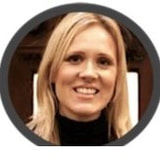
Rachel Sinha
Rachel is a British award-winning social innovator. She is Founder of The Systems Studio designed to build a thriving field of systems change practice. Prior to that Rachel was one of four co-founders of The Finance Innovation Lab, named by the Guardian newspaper as one of 50 Radicals- ‘changing the face of the UK for the better’, she built the Lab from an idea, to an independent fully funded not-for-profit. She is an established thought leader in the field of social innovation and systems change and has co-written book on social Labs (Labcraft), written for publications including HBR and Fast Company, documented the work of systems leaders with Oxford University as well as written up her experiences of running a Lab in A Strategy for Systems Change. Her most recent publication written in partnership with Tim Draimin, Mapping Momentum, offers a snapshot of the emerging field of systems change practice.
Rachel is a British award-winning social innovator. She is Founder of The Systems Studio designed to build a thriving field of systems change practice. Prior to that Rachel was one of four co-founders of The Finance Innovation Lab, named by the Guardian newspaper as one of 50 Radicals- ‘changing the face of the UK for the better’, she built the Lab from an idea, to an independent fully funded not-for-profit. She is an established thought leader in the field of social innovation and systems change and has co-written book on social Labs (Labcraft), written for publications including HBR and Fast Company, documented the work of systems leaders with Oxford University as well as written up her experiences of running a Lab in A Strategy for Systems Change. Her most recent publication written in partnership with Tim Draimin, Mapping Momentum, offers a snapshot of the emerging field of systems change practice.
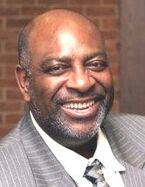
Fred Smith
Fred, Rev. Dr., is a Christian educator serving in communities dealing with long-term challenges and vulnerabilities. Educated at Harvard, SMU and Emory, he has worked at the foundation of the Interfaith Health Program at the Carter Center. He is the primary architect of 'Not Even One', a highly creative strategy to treat every handgun death as a "sentinel event" subject to broad community analysis to prevent the next one. He has adapted religious assets mapping and leading causes of life into his participatory educational designs at Wesley Theological Seminary, Washington DC, and been a key leader in Stakeholder Health and the congregational networks in both Memphis and North Carolina. A widely sought speaker and counselor in both religious and public health circles, he recently returned to his boyhood home, Valejo California, as a United Methodist pastor and community leader.
Fred, Rev. Dr., is a Christian educator serving in communities dealing with long-term challenges and vulnerabilities. Educated at Harvard, SMU and Emory, he has worked at the foundation of the Interfaith Health Program at the Carter Center. He is the primary architect of 'Not Even One', a highly creative strategy to treat every handgun death as a "sentinel event" subject to broad community analysis to prevent the next one. He has adapted religious assets mapping and leading causes of life into his participatory educational designs at Wesley Theological Seminary, Washington DC, and been a key leader in Stakeholder Health and the congregational networks in both Memphis and North Carolina. A widely sought speaker and counselor in both religious and public health circles, he recently returned to his boyhood home, Valejo California, as a United Methodist pastor and community leader.
|
Deon Snyman holds a MA in Semitic Languages and a Ph.D. in Theology from the University of Pretoria and a MPhil in Political Studies from the University of Cape Town. He served 11 years as a minister of rural Zulu-speaking congregations of the Uniting Reformed Church in Southern Africa. He then worked for the Diakonia Council of Churches in Durban as the Manager of Priority Issues. In 2006 was appointed as the Chief Operating Officer of the Restitution Foundation (www.restitution.org.za) and in 2019 he was appointed as the Managing Director of the Goedgedacht Trust (www.goedgedacht.org ).
|
-
Stewart, Craig
-
Taliep, Naiema
-
Tertiens-Reeler, Beulah
-
(Tharyan, Anna)
-
Tolentino, Herman
<
>
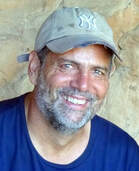
Craig Stewart
Craig has degrees in Zoology and International Development. At first a high school science educator, he is now the CEO of The Warehouse Trust in Cape Town, a very active and highly respected faith based community development organization engaged in community development and community-based advocacy. He is interested in the application of complexity and systems thinking to the work of community development along with a passion for leadership development. Craig most recently has developed a growing curiosity about water, sanitation and hygiene related issues which brings together his academic fields of study. Calling himself 'reasonably gregarious extrovert with a need for regular silence and times of solitude,' Craig also loves mountain biking and camping in the mountains. He is motivated by the belief that 'in wholeness of my life I can work towards the establishment of shalom [human thriving] in the world around me.'
Craig has degrees in Zoology and International Development. At first a high school science educator, he is now the CEO of The Warehouse Trust in Cape Town, a very active and highly respected faith based community development organization engaged in community development and community-based advocacy. He is interested in the application of complexity and systems thinking to the work of community development along with a passion for leadership development. Craig most recently has developed a growing curiosity about water, sanitation and hygiene related issues which brings together his academic fields of study. Calling himself 'reasonably gregarious extrovert with a need for regular silence and times of solitude,' Craig also loves mountain biking and camping in the mountains. He is motivated by the belief that 'in wholeness of my life I can work towards the establishment of shalom [human thriving] in the world around me.'
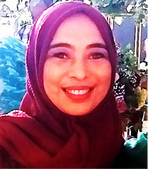
Naiema Taliep
Naiema, who recently received her Ph.D (University of the Western Cape), is a research psychologist with expertise and experience in community-based participatory action research, community engagement, violence prevention, and programme development and evaluation. Her doctoral dissertation focused on the participatory development and evaluation of a complex, community-based, interpersonal violence prevention intervention, of which she has been part, that focused on the promotion of positive forms of masculinity and safety and peace. She is currently employed at the joint South African Medical Research Council and University of South Africa Violence Injury and Peace Research Unit. She has produced several peer-reviewed publications and training manuals in collaboration with community members. She loves gardening and cooking, if she is not busy in the community.
Naiema, who recently received her Ph.D (University of the Western Cape), is a research psychologist with expertise and experience in community-based participatory action research, community engagement, violence prevention, and programme development and evaluation. Her doctoral dissertation focused on the participatory development and evaluation of a complex, community-based, interpersonal violence prevention intervention, of which she has been part, that focused on the promotion of positive forms of masculinity and safety and peace. She is currently employed at the joint South African Medical Research Council and University of South Africa Violence Injury and Peace Research Unit. She has produced several peer-reviewed publications and training manuals in collaboration with community members. She loves gardening and cooking, if she is not busy in the community.
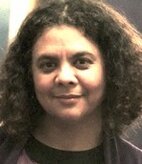
Beulah Tertiens-Reeler
BA, HDE, BDE, Med, A teacher at heart, Beulah does in-service training and developmental work within the framework of Whole School Development and Action Research, with teachers, principals and district managers. She is a recipient of a USA Fulbright Scholarship on Outcomes-Based Education, has completed her Masters Degree in Higher Education as well as her Waldorf teacher training. She was a senior lecturer in the B.Ed programme at the Centre for Creative Education and is an advocate of holistic, creative and contemporary educational approaches that foster individual learning and parti-cipation to bring about social awareness, active involvement and interconnection. Her focus is on imaginative and joyful approaches which encourage practitioner health, vitality and artistic expression. At the moment she also works with the Barefoot Guide Connection Social Change Writing School, facilitating writeshops with organisations wanting to write up case studies of their work or to make their practice more visible and accessible, as well as providing writing coaching and editing services. Contact [email protected]
BA, HDE, BDE, Med, A teacher at heart, Beulah does in-service training and developmental work within the framework of Whole School Development and Action Research, with teachers, principals and district managers. She is a recipient of a USA Fulbright Scholarship on Outcomes-Based Education, has completed her Masters Degree in Higher Education as well as her Waldorf teacher training. She was a senior lecturer in the B.Ed programme at the Centre for Creative Education and is an advocate of holistic, creative and contemporary educational approaches that foster individual learning and parti-cipation to bring about social awareness, active involvement and interconnection. Her focus is on imaginative and joyful approaches which encourage practitioner health, vitality and artistic expression. At the moment she also works with the Barefoot Guide Connection Social Change Writing School, facilitating writeshops with organisations wanting to write up case studies of their work or to make their practice more visible and accessible, as well as providing writing coaching and editing services. Contact [email protected]
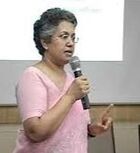
Anna Tharyan [for personal reasons Anna has withdrawn but still supports LCLI,
so we keep her in mind and on site]
Professor and consultant in general adult Psychiatry, with an interest in psychosocial rehabilitation, Anna works on ways of extending the reach of the clinical services of the tertiary care referral center in which she has worked all her life. How to make mental health care affordable and accessible to those who are economically deprived is her vital concern. Anna has taught Psychiatry to postgraduate students of Psychiatry, medical undergraduates, nursing and occupational therapy students, but of greater interest to her is the opportunity to teach basic Psychiatry to community volunteers and other non-professional workers, as well as to initiate innovation in service delivery amongst economically challenged communities & carry over lessons learnt to redefine what, in the context of health, is assumed to be standard wisdom and science.
so we keep her in mind and on site]
Professor and consultant in general adult Psychiatry, with an interest in psychosocial rehabilitation, Anna works on ways of extending the reach of the clinical services of the tertiary care referral center in which she has worked all her life. How to make mental health care affordable and accessible to those who are economically deprived is her vital concern. Anna has taught Psychiatry to postgraduate students of Psychiatry, medical undergraduates, nursing and occupational therapy students, but of greater interest to her is the opportunity to teach basic Psychiatry to community volunteers and other non-professional workers, as well as to initiate innovation in service delivery amongst economically challenged communities & carry over lessons learnt to redefine what, in the context of health, is assumed to be standard wisdom and science.
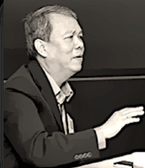
Herman Tolentino
Dr., Herman works in global public health, empowering people and organizations to use health information effectively for transforming health systems. Trained in anesthesiology, and medical and public health informatics, he administered the CDC Public Health Informatics Fellowship Program from 2007-2015, as program director where he developed innovative approaches to train ‘interprofessional boundary spanners’ who can collaboratively solve problems through systems thinking. After moving to the CDC Center for Global Health in 2016 he embarked on creative approaches to develop the informatics workforce and informatics-savvy organizations in low to middle income countries in Asia, and sub-Saharan Africa, to harness the benefits from collaborative problem solving through systems, design, strategic and evaluative thinking, and enable the use of data for decision-making. He continues to mentor, train and develop systems leaders and change agents and creatively tap computing for social good.
Dr., Herman works in global public health, empowering people and organizations to use health information effectively for transforming health systems. Trained in anesthesiology, and medical and public health informatics, he administered the CDC Public Health Informatics Fellowship Program from 2007-2015, as program director where he developed innovative approaches to train ‘interprofessional boundary spanners’ who can collaboratively solve problems through systems thinking. After moving to the CDC Center for Global Health in 2016 he embarked on creative approaches to develop the informatics workforce and informatics-savvy organizations in low to middle income countries in Asia, and sub-Saharan Africa, to harness the benefits from collaborative problem solving through systems, design, strategic and evaluative thinking, and enable the use of data for decision-making. He continues to mentor, train and develop systems leaders and change agents and creatively tap computing for social good.
-
Viverette, Emily
-
v. Broembsen, Marlese
-
Wilson, Francis
-
Winslow, Jerry
-
Wood Ion, Heather
<
>
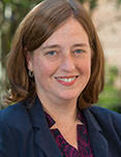
Emily Viverette
M.Div. Emily serves as the Director of FaithHealth Education in the Division of FaithHealth Ministries at Wake Forest Baptist Health. In this role, she provides leadership for educational initiatives and innovative offerings that bridge faith and health across the scope of the Division both inside and outside the walls of the medical center. Emily is passionate about the power of education to transform lives and communities, particularly collaborative learning that builds on the assets, personal reflections and lived experiences of participants. She has experience as a high school math teacher, chaplain, and chaplain supervisor (Association of Clinical Pastoral Education, Inc.). Ordained in the Christian Church (Disciples of Christ), Emily holds a B.S. in Mathematics from Elon University and a M.Div. from Vanderbilt University. When she isn’t working, she enjoys spending time with her spouse and two children, reading a good memoir or Southern novel, and almost any destination with a body of water.
M.Div. Emily serves as the Director of FaithHealth Education in the Division of FaithHealth Ministries at Wake Forest Baptist Health. In this role, she provides leadership for educational initiatives and innovative offerings that bridge faith and health across the scope of the Division both inside and outside the walls of the medical center. Emily is passionate about the power of education to transform lives and communities, particularly collaborative learning that builds on the assets, personal reflections and lived experiences of participants. She has experience as a high school math teacher, chaplain, and chaplain supervisor (Association of Clinical Pastoral Education, Inc.). Ordained in the Christian Church (Disciples of Christ), Emily holds a B.S. in Mathematics from Elon University and a M.Div. from Vanderbilt University. When she isn’t working, she enjoys spending time with her spouse and two children, reading a good memoir or Southern novel, and almost any destination with a body of water.
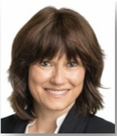
Marlese von Broembsen
Marlese, with law degrees from the University of Cape Town and Harvard Law School and an M.A. in Development Studies (University of the Western Cape), was a senior lecturer in the Faculty of Law, University of Cape Town, and adjunct faculty member of North Eastern Law School (USA) in 2018. After qualifying as an attorney, Marlese worked for an NGO active in small business development in Cape Town's informal settlements for four years, and co-taught a master's course on social policy at the Institute for Social Development, University of the Western Cape, for three years. Lead researcher for UCT's Graduate School of Business' Global Entrepreneurship Monitor 2005 publication on the informal economy, she wrote the South African paper on small business rights for the UNDP's Commission for the Legal Empowerment of the Poor. As a partner of South Consulting, she project-managed human rights initiatives and economic development in Southern and Eastern Africa. Since then she has been a recipient of a Harvard South Africa Fellowship (2014); a David and Elaine Potter Research Fellowship for contribution to civil society (2014; 2015); and a National Research Foundation Innovation Scholarship (2014), also a Visiting Researcher at the Institute for Global Law and Policy (IGLP), Harvard Law School. Marlese is now the Law Programme Director of WIEGO (Women in Informal Employment: Globalizing and Organizing), a global membership-based research and advocacy organisation for women who work in the informal economy. She notes that "All around the world, the law criminalizes the activities of street traders and waste pickers, and excludes homeworkers from employment rights and benefits. What is needed are new legal and institutional approaches to informal workers that recognize informal workers as workers and as contributors to the economy."
Marlese, with law degrees from the University of Cape Town and Harvard Law School and an M.A. in Development Studies (University of the Western Cape), was a senior lecturer in the Faculty of Law, University of Cape Town, and adjunct faculty member of North Eastern Law School (USA) in 2018. After qualifying as an attorney, Marlese worked for an NGO active in small business development in Cape Town's informal settlements for four years, and co-taught a master's course on social policy at the Institute for Social Development, University of the Western Cape, for three years. Lead researcher for UCT's Graduate School of Business' Global Entrepreneurship Monitor 2005 publication on the informal economy, she wrote the South African paper on small business rights for the UNDP's Commission for the Legal Empowerment of the Poor. As a partner of South Consulting, she project-managed human rights initiatives and economic development in Southern and Eastern Africa. Since then she has been a recipient of a Harvard South Africa Fellowship (2014); a David and Elaine Potter Research Fellowship for contribution to civil society (2014; 2015); and a National Research Foundation Innovation Scholarship (2014), also a Visiting Researcher at the Institute for Global Law and Policy (IGLP), Harvard Law School. Marlese is now the Law Programme Director of WIEGO (Women in Informal Employment: Globalizing and Organizing), a global membership-based research and advocacy organisation for women who work in the informal economy. She notes that "All around the world, the law criminalizes the activities of street traders and waste pickers, and excludes homeworkers from employment rights and benefits. What is needed are new legal and institutional approaches to informal workers that recognize informal workers as workers and as contributors to the economy."
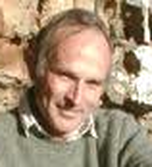
Francis Wilson † (17 May 1939 – 24 April 2022)
An economist, and consummate inspirer of others, Francis is part of the team that leads a national initiative on stra-tegies for dealing with poverty and inequality in South Africa. Education is another passion, with a particular concern about how one creates an environment that builds moral, visionary and deeply human persons. Founder of the Southern African Labour and Development Research Unit (SALDRU), first Director of the Data First Resource Unit at the Univer-sity of Cape Town, a former UCT orator, Chairperson of Council at the University of Fort Hare from 1990-1999, and first Chairperson, 1996- 1999, of the National Water Advisory Council; from 2001 Chairperson of the International Social Science Council’s Scientific Committee of the International Comparative Research Program on Poverty. The 3rd. edition of his Dinosaurs, Diamonds & Democracy: A Short Short History of South Africa, is out in Afrikaans, English and Xhosa.
An economist, and consummate inspirer of others, Francis is part of the team that leads a national initiative on stra-tegies for dealing with poverty and inequality in South Africa. Education is another passion, with a particular concern about how one creates an environment that builds moral, visionary and deeply human persons. Founder of the Southern African Labour and Development Research Unit (SALDRU), first Director of the Data First Resource Unit at the Univer-sity of Cape Town, a former UCT orator, Chairperson of Council at the University of Fort Hare from 1990-1999, and first Chairperson, 1996- 1999, of the National Water Advisory Council; from 2001 Chairperson of the International Social Science Council’s Scientific Committee of the International Comparative Research Program on Poverty. The 3rd. edition of his Dinosaurs, Diamonds & Democracy: A Short Short History of South Africa, is out in Afrikaans, English and Xhosa.
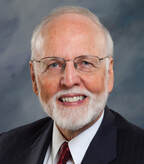
Gerald (Jerry) Winslow
Retired Director, Loma Linda University Institute for Health Policy and Leadership, Jerry received his undergraduate education at Walla Walla University, masters degree at Andrews University, and doctorate from the Graduate Theological Union, Berkeley. He has been a visiting scholar at Cambridge University, University of Virginia, and the University of Tübingen in Germany, and presented lectures and seminars at universities and throughout North America and in Australia, Europe, Russia, Africa, and Asia. For over forty years, he has specialized in teaching and writing about ethics, especially biomedical ethics. His work focuses on the intersection of social ethics and public policy. His books include Triage and Justice (University of California Press) and Facing Limits (edited with James Walters, Westview Press). His articles have appeared inter alia in Western Journal of Medicine, the Journal of Pediatrics, the Hastings Center Report, the Journal of Medicine and Philosophy, and General Dentistry. A member of Stakeholder Health’s Advisory Council, he is also a member of the California Technology Assessment Forum, a public forum for the evaluation of new health care technologies, and served as a consultant in biomedical ethics for major health care systems in the United States and internationally. His current personal and professional passion is for connecting healthcare systems to community organizations to form creative partnerships for more effective community health development. He is especially interested in new forms of collaboration between health systems and communities of faith. When he is not engaged in this work, he may be found in his woodshop or garden, or playing with his two grandsons. Jerry is married to Dr. Betty Wehtje Winslow, who teaches community health nursing at Loma Linda University, with two daughters, Lisa, a computer software engineer, and Angela, an occupational therapist.
Retired Director, Loma Linda University Institute for Health Policy and Leadership, Jerry received his undergraduate education at Walla Walla University, masters degree at Andrews University, and doctorate from the Graduate Theological Union, Berkeley. He has been a visiting scholar at Cambridge University, University of Virginia, and the University of Tübingen in Germany, and presented lectures and seminars at universities and throughout North America and in Australia, Europe, Russia, Africa, and Asia. For over forty years, he has specialized in teaching and writing about ethics, especially biomedical ethics. His work focuses on the intersection of social ethics and public policy. His books include Triage and Justice (University of California Press) and Facing Limits (edited with James Walters, Westview Press). His articles have appeared inter alia in Western Journal of Medicine, the Journal of Pediatrics, the Hastings Center Report, the Journal of Medicine and Philosophy, and General Dentistry. A member of Stakeholder Health’s Advisory Council, he is also a member of the California Technology Assessment Forum, a public forum for the evaluation of new health care technologies, and served as a consultant in biomedical ethics for major health care systems in the United States and internationally. His current personal and professional passion is for connecting healthcare systems to community organizations to form creative partnerships for more effective community health development. He is especially interested in new forms of collaboration between health systems and communities of faith. When he is not engaged in this work, he may be found in his woodshop or garden, or playing with his two grandsons. Jerry is married to Dr. Betty Wehtje Winslow, who teaches community health nursing at Loma Linda University, with two daughters, Lisa, a computer software engineer, and Angela, an occupational therapist.
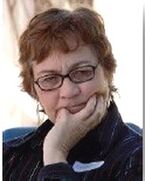
Heather Wood Ion
Heather has degrees from McGill University, Claremont Graduate School and Oxford University in history, comparative religion, cultural anthropology, and Indology, doing teaching, fieldwork and various jobs in UC San Diego, Calcutta, Kyoto and Heidelberg. This, as she puts it, has ‘kept me in the glorious mess of everyday challenges to poor people and people on the margins.’ Widely published, her writing having been translated into numerous languages, Heather worked with Jonas Salk for eight years on how to create an epidemic of health. She has been working for 25+ years on turnarounds in healthcare—taking troubled practices, or large systems, discovering their challenges and their assets, and then building a turnaround on the basis of inherent talents and strength.
Heather has degrees from McGill University, Claremont Graduate School and Oxford University in history, comparative religion, cultural anthropology, and Indology, doing teaching, fieldwork and various jobs in UC San Diego, Calcutta, Kyoto and Heidelberg. This, as she puts it, has ‘kept me in the glorious mess of everyday challenges to poor people and people on the margins.’ Widely published, her writing having been translated into numerous languages, Heather worked with Jonas Salk for eight years on how to create an epidemic of health. She has been working for 25+ years on turnarounds in healthcare—taking troubled practices, or large systems, discovering their challenges and their assets, and then building a turnaround on the basis of inherent talents and strength.

